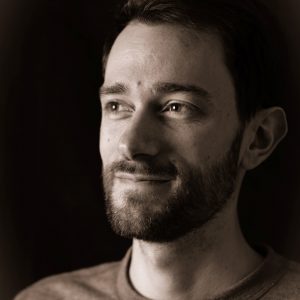Philippe Néméh-Nombré is an assistant professor at Saint Paul University’s Élisabeth Bruyère School of Social Innovation. Before joining Saint Paul University, he was a postdoctoral researcher in the Department of Geography at Concordia University. He holds a master’s degree in sociology from the Université du Québec à Montréal and a doctorate in sociology from the Université de Montréal. His research focuses on Black political thought, cultures, poetics and ecologies, on the potential relationships between Black and Indigenous liberatory perspectives, and on critical methodologies. He is also a member of the Black Symposium noir organizing committee.
Team
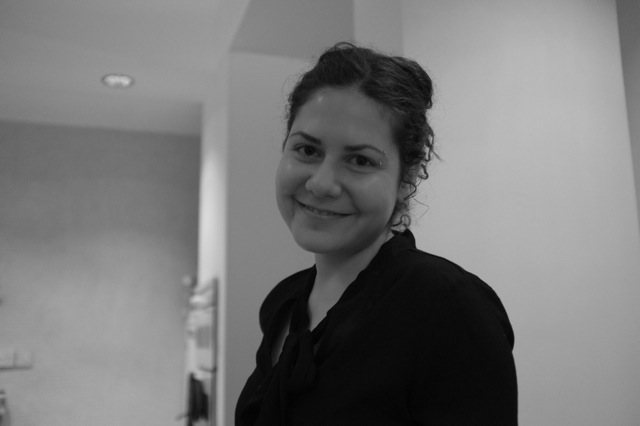
Bengi Akbulut
Researcher
Bengi Akbulut is an assistant professor at the department of Geography, Planning and Environment, Concordia University. She received her B.A. from Bogazici University (2004) and PhD from University of Massachusetts at Amherst (2011), both in economics. Her research is in political economy and ecological economics, focusing on developmentalism, state-society relationships, social movements and economic alternatives. Her joint and independent work appeared in the Cambridge Journal of Economics, Development and Change, Journal of Peasant Studies, Ecological Economics and Geoforum.
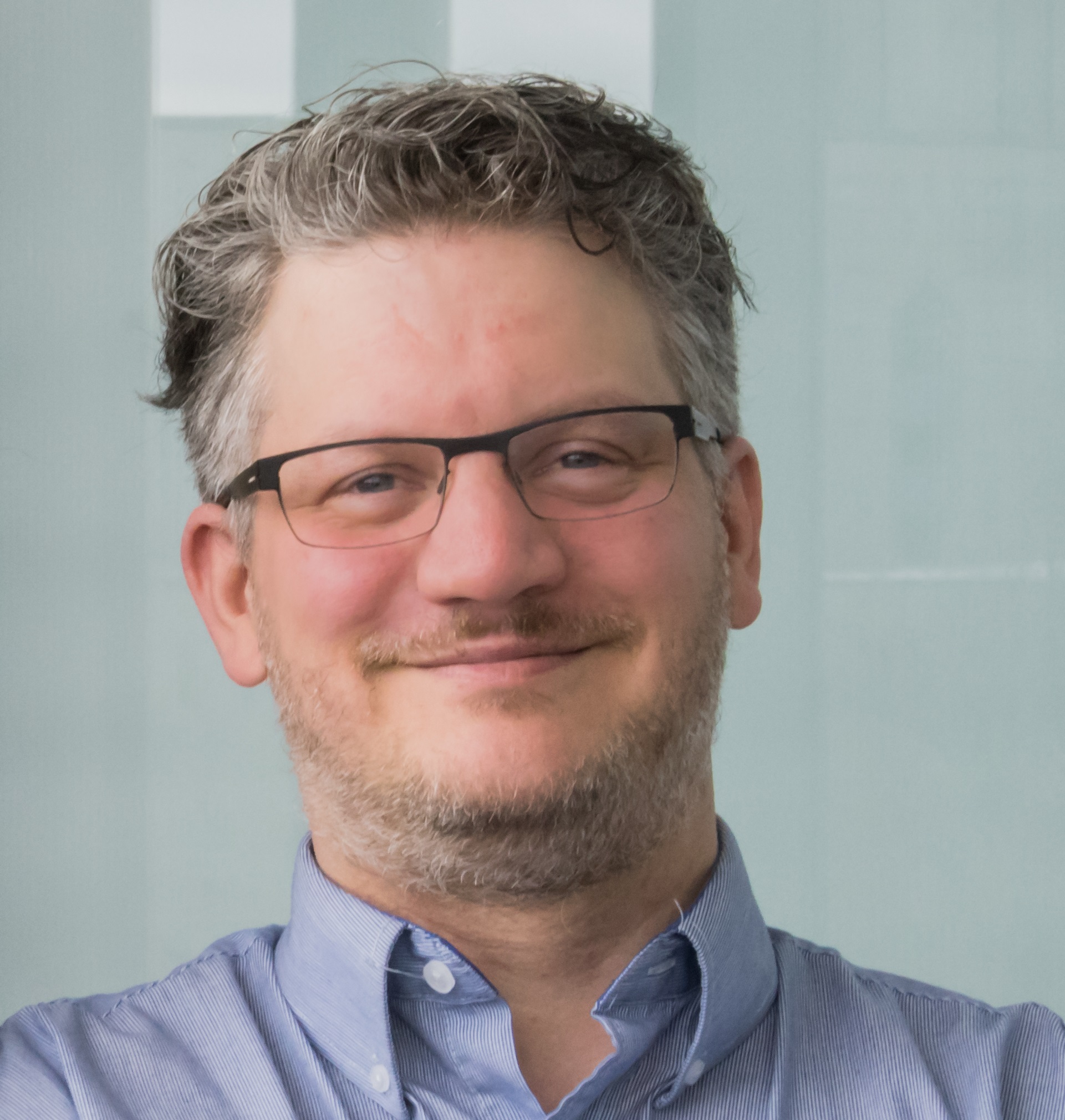
Luc Audebrand
Researcher
Luc K. Audebrand is Full Professor of Responsible Management and Solidarity Economy at Université Laval (Québec, Canada). He holds the Chair in educational leadership on social engagement. His research interests focus on the management of paradoxes in alternative organizations and collaborative dynamics within and around alternative meta-organizations. More recently, he has been working on governance and interoperability issues in cooperative platforms. Luc has published articles in ‘Organization Studies’, ‘Journal of Business Ethics’, ‘Academy of Management Learning & Education’, ‘M@n@gement’, and ‘Journal of Management Education’. He is also the scientific director of Université Laval’s social engagement initiative, whose objective is to promote the participation of students, professors and employees in the community. Since 2018, he is in charge of the MOOC on responsible management at Université Laval, with more than 21,000 participants in 60 countries so far.
1 ongoing research
Research axis : Democratic management
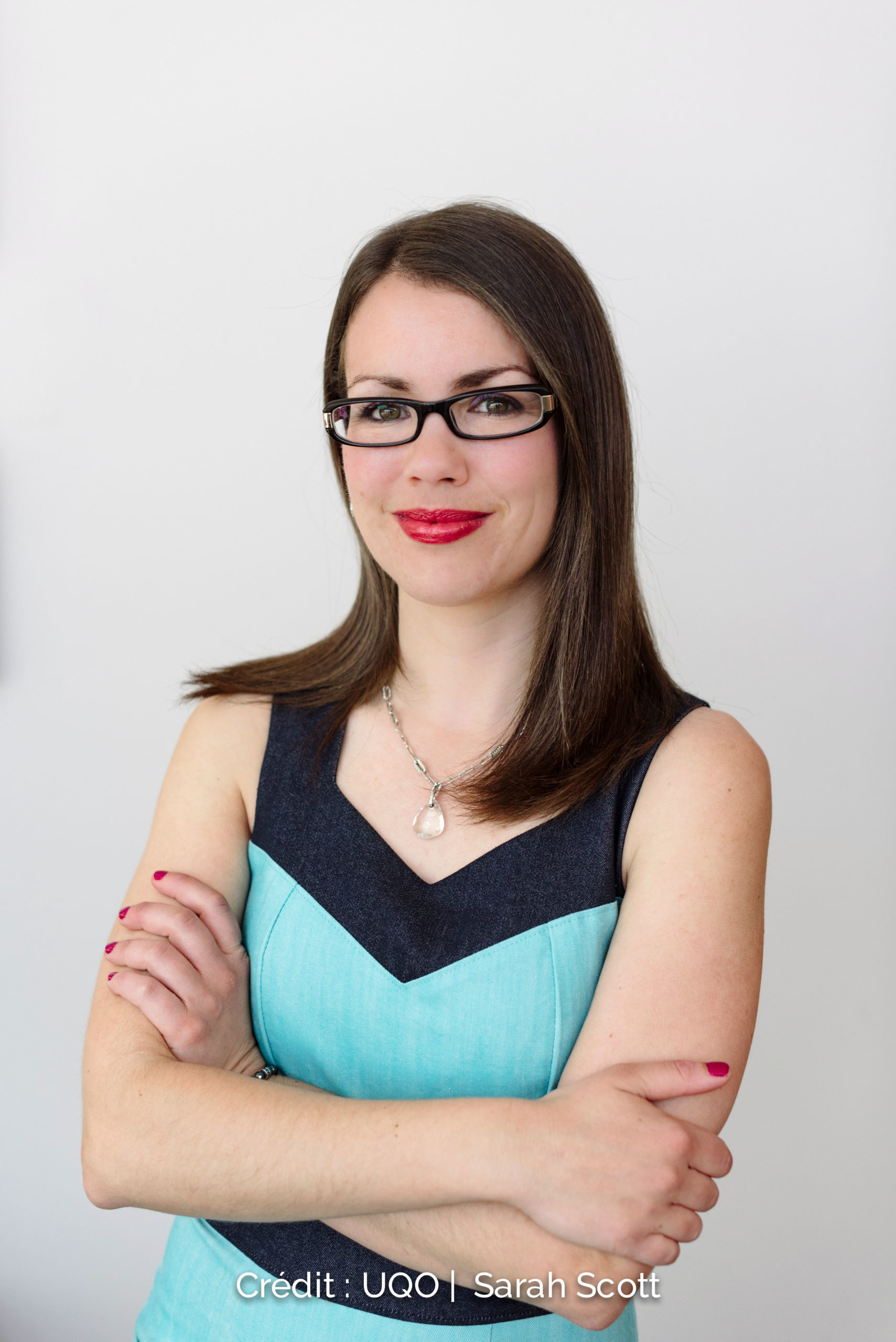
Julie Bérubé
Researcher
Julie Bérubé is an associate professor in the Department of Administrative Sciences at the Université du Québec en Outaouais (UQO). She holds a master’s degree in project management from UQO and a doctorate in administration, specializing in management from HEC Montréal. Her research interests focus on cultural industries where she studies issues related to equity, diversity and inclusion, identity tensions, the effects of the COVID-19 pandemic and innovations. She adopts a critical research posture and is particularly interested in French critical pragmatism.
Research axis : Social Action

Martin Blais
Researcher
Martin Blais is a Professor teaching foundational courses at the undergraduate level across several disciplines. He was a long-time Professor in the School of Social Communications at Saint Paul University; he now teaches in the School of Counseling, Psychotherapy and Spirituality at the same university. His energies are primarily directed towards the mentoring and training of students. Although his main intellectual interest is the theory of communication from an interdisciplinary perspective, he also has a long-held interest in the rather dysfunctional functioning of organizations.
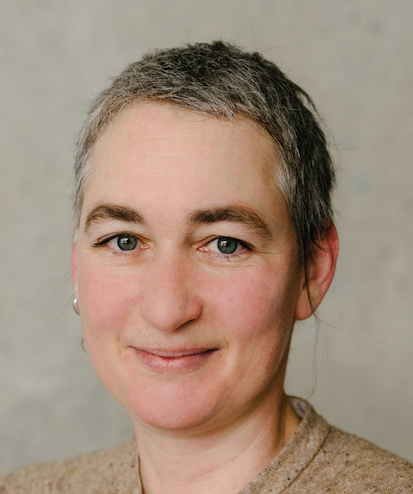
Marie-Pierre Boucher
Researcher
Marie-Pierre Boucher is a critical sociologist and professor in the Industrial Relations Department at the Université du Québec en Outaouais. Her work focuses on transformations in employment, representations of work, the sexual division of labor, the commodification of social activities, and social policies, particularly taxation and social assistance.
She helped organize the colloquium “De l’occupation à l’autogestion – récits et héritages de Tricofil”, at the Université du Québec en Outaouais (UQO), on November 25, 2022 in Saint-Jérôme, and imagines the next one to be held in 2025.
Marie-Pierre Boucher is currently conducting research into the demarchandizing and emancipating scope of work experiences in companies from struggling backgrounds in North America.
She is a member of other research groups, including the Groupe interuniversitaire et interdisciplinaire de recherche sur l’emploi, la pauvreté et la protection sociale (GIREPS) and the Centre de recherche sur les innovations sociales (CRISES).
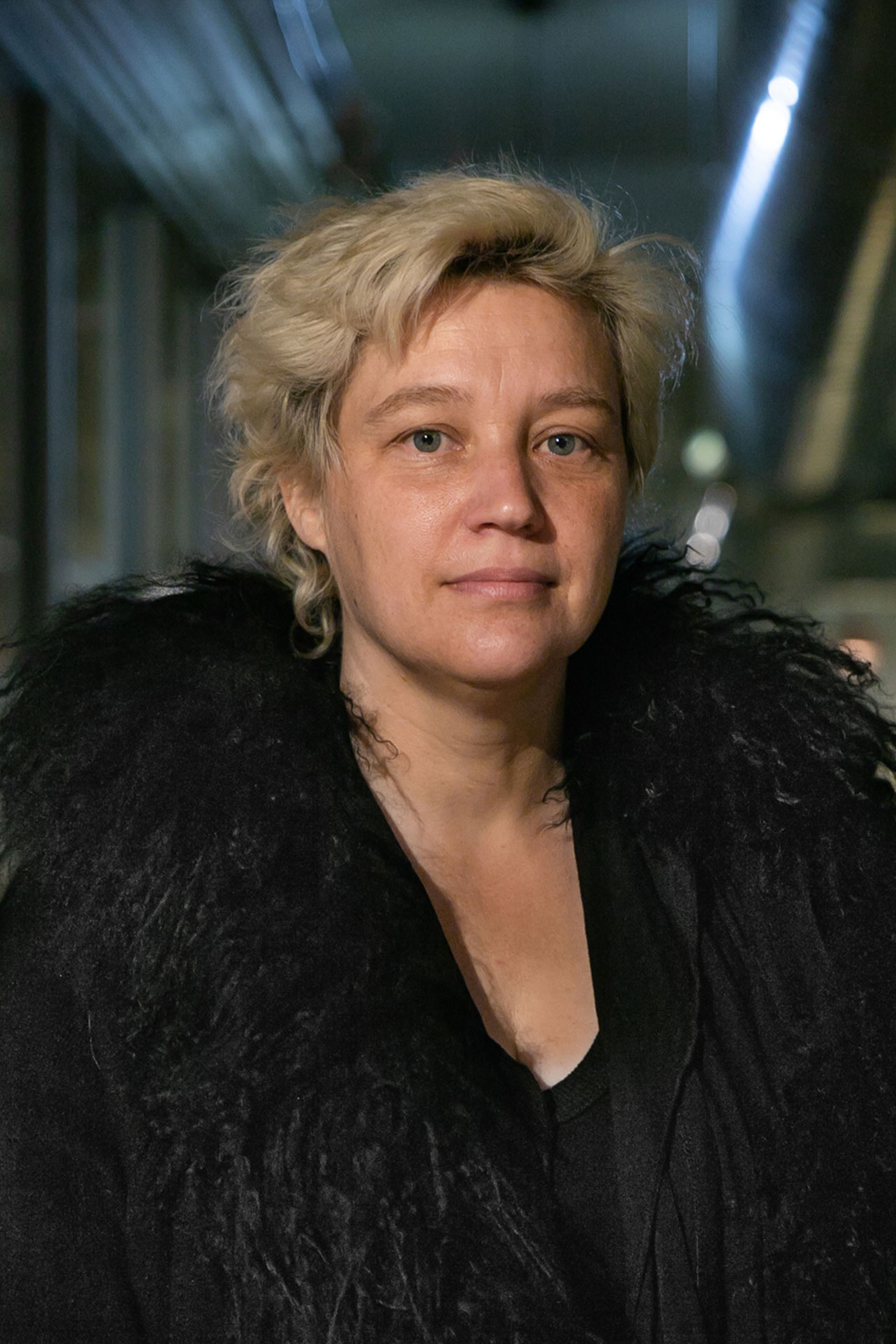
Julie Chateauvert
Researcher
Julie Chateauvert is assistant professor in the Élisabeth Bruyère School of Social Innovation. She completed a PhD in Arts Studies and Practices at UQAM and then a postdoctoral position at the Paris 8 University’s Critical Knowledge Transfer and Knowledge Dynamics team. Her work has focused on narrative creation in Sign Languages. She is interested in how artists resist not only the marginalization of their languages but propose a new perspective on the world which transforms body norms and fuels a rethinking of the relationships between linguistic and cultural majority and minorities. Her research interests also include practice-based research methodologies, power relations, leadership, and accessibility in organizations. She published “Le tiers synesthète : espace d’accueil pour la création en langue des signes” in the journal intermedialités, issue 27, and “Création en langue des signes : intermédialité et proxémie” in Discours et représentations du handicap, edited by Soline Vennetier and Céline Roussel (Éditions Garnier Classique). She is also a researcher associated with the disability and society program of the EHESS (Paris) and the Labex Art H2H through her participation in the project Traduire la performance/performer la traduction.
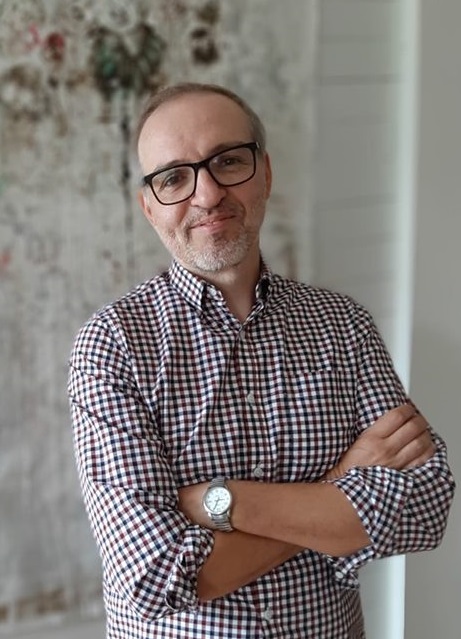
Emmanuel Choquette
Post-doctoral fellow
Emmanuel Choquette work’s, combining strategical communication, political science, social innovation and humor studies, involves several disciplines and fields of study. His postdoctoral researches aims to identify and develop, in particular through the use of humour, the most effective processes and discursive strategies to combat radicalism and the circulation of hate speech on the Web.
Research axis : Engaged Pedagogies and Practice of Research
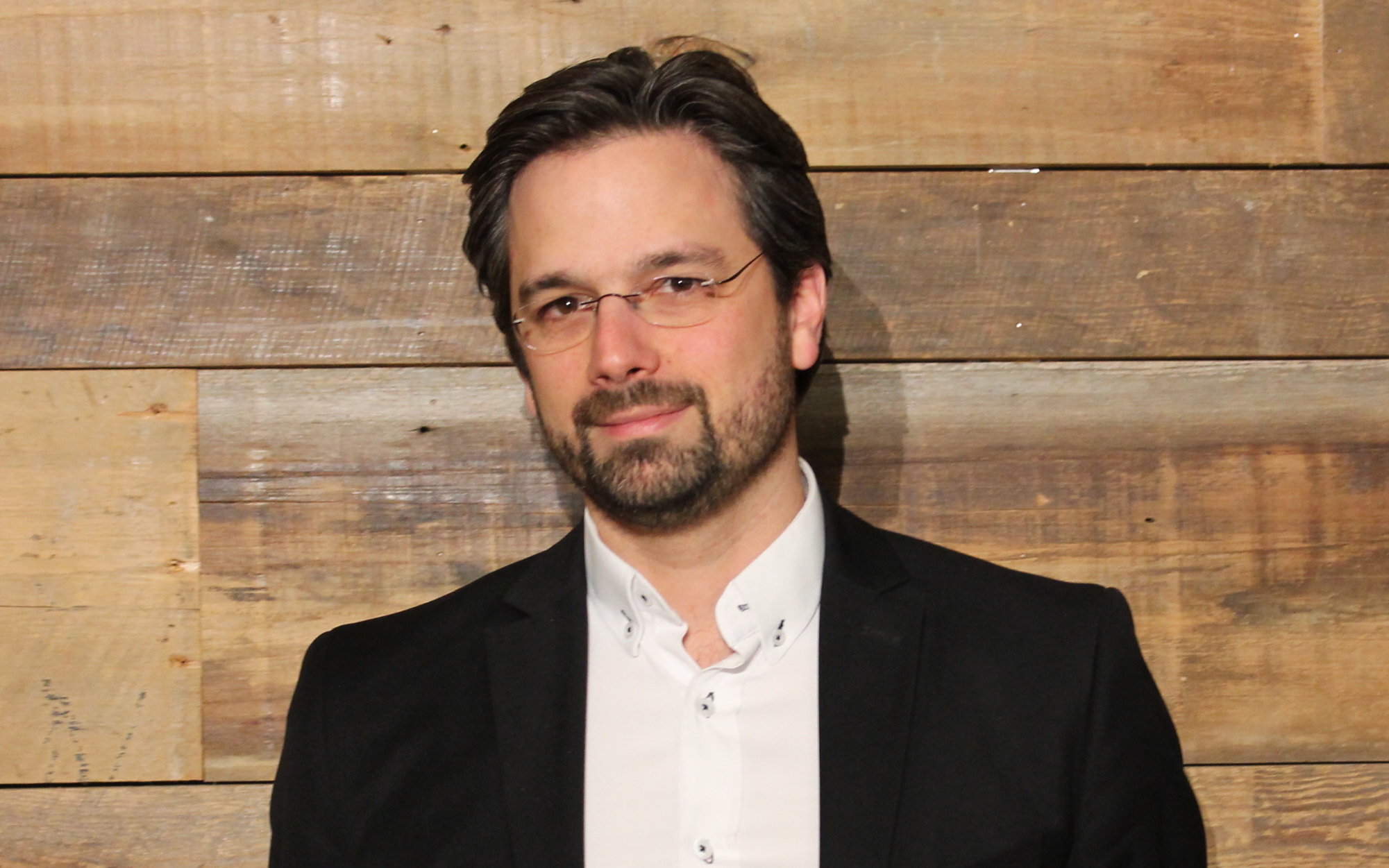
Philippe Dufort
Researcher
Philippe Dufort holds a PhD from the Department of Politics and International Studies (POLIS) of the University of Cambridge, UK. He is an Associate Professor at the Elisabeth-Bruyère Social Innovation School at Saint Paul University, Ottawa. He studies the epistemological underpinnings of strategic innovation, with a particular interest in the translation of reflexive military knowledge into forms that are useful to social movements. He is an associate researcher at the Colombian Superior School of War. He acted as an Associate Editor of the Cambridge Review of International Affairs (CRIA) from 2009 to 2013 and was the founding director of the Elisabeth-Bruyère School of Social Innovation in 2015. Apart from his experience in academic research, he has previously worked as a journalist in Latin America, a human Rights observer in conflict zones, and as a contrat analyst for the Canadian Mission to the European Union in Brussels.
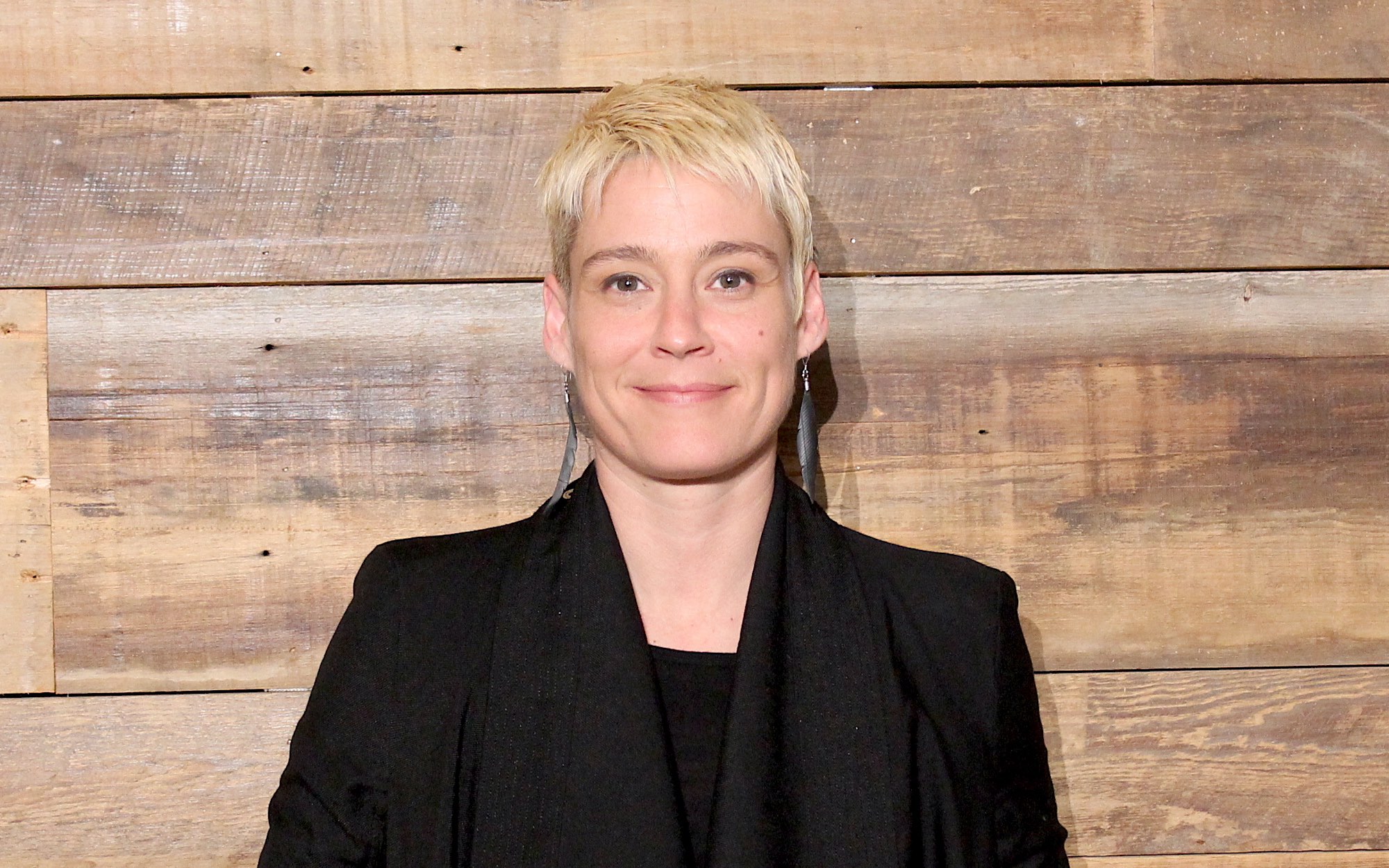
Nadia Duguay
Community-based researcher
Nadia Duguay is the co-founder of Exeko – an organization that uses artistic and intellectual creativity in support of inclusive and emancipatory social transformation. Member of the Executive Committee of the Canadian Commission for UNESCO, the Observatory of Cultural Mediation Practices (OMEC), the Quebec Network for Social Innovation (RQIS), and the Board of Directors of the Caisse Solidaire Desjardins Desjardins, she also sits on various advisory committees including the Chagnon Foundation’s Éclaireur Group and the Rideau Hall Foundation. She is also Ashoka Fellow. Her interests include research practice and inclusive social development, cultural and intellectual mediations, and social innovations rooted in a social justice perspective. She is co-author of “Entre innovation sociale, pluralité de l’exclusion & transformation culturelle” in the Social Innovation Review (2017).
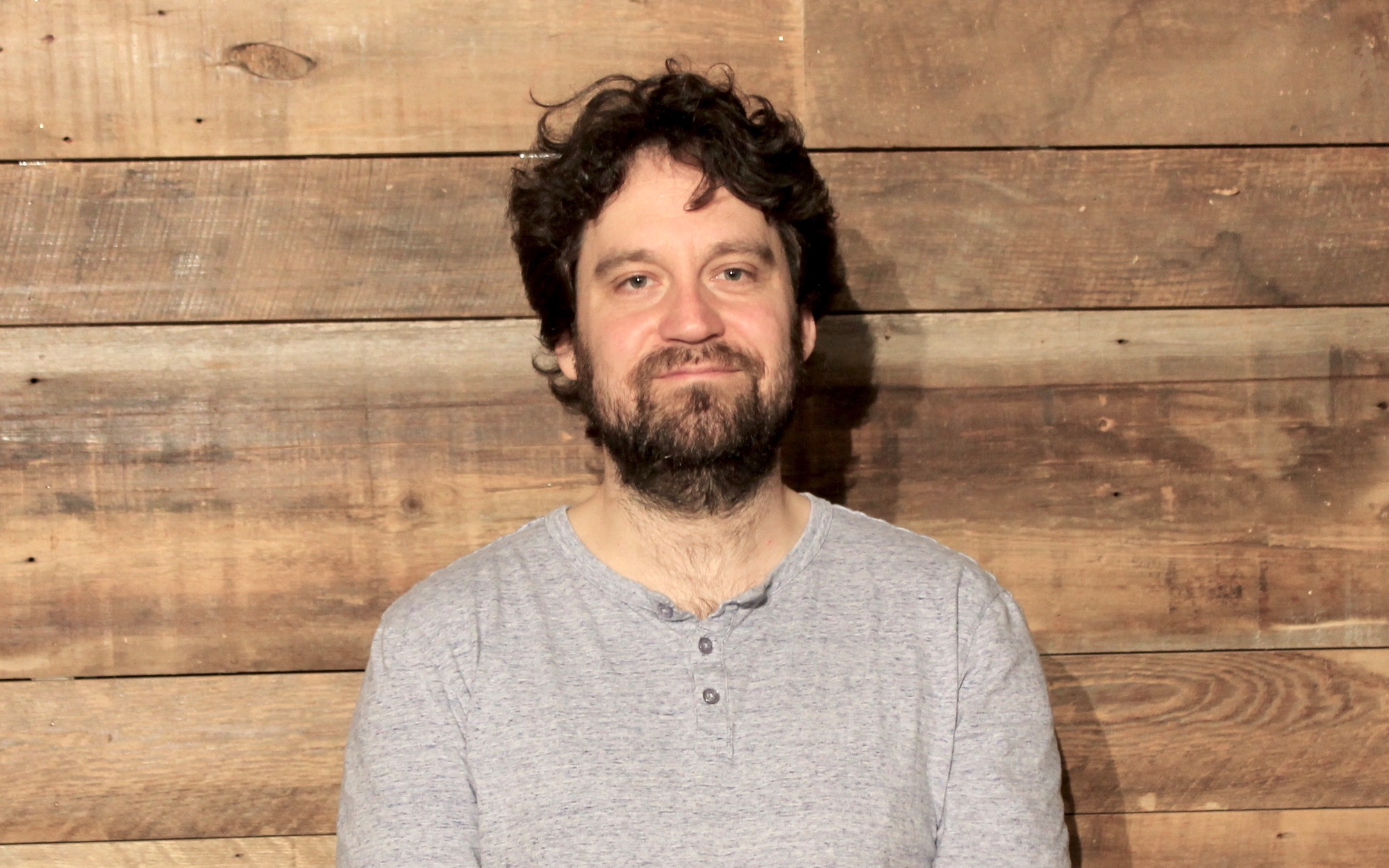
Mathieu Dufour
Researcher
Mathieu Perron-Dufour is an associate professor in the Département des sciences sociales at the Université du Québec en Outaouais, where he has been teaching for four years. Before that, he was a professor at John Jay College (City University of New York) and Dalhousie University, and also taught in China. He obtained his PhD in economics from the University of Massachusetts, Amherst and his dissertation was on the dynamics of international financial crises. Mathieu has written several peer-reviewed article on that topic, as well as other subjects pertaining to public policy, with a particular focus on income distribution. He sits on the board of the Institut de recherche et d’information socioéconomique and the editorial board of the journal Studies in Political Economy.

Jonathan Durand Folco
Researcher
Jonathan Durand Folco is an Assistant Professor in the Elisabeth-Bruyère School of Social Innovation at Saint Paul University in Ottawa. His research interests include participatory and deliberative democracy, municipal politics, the commons, ecological transition and degrowth. He is the author of À nousla ville! Traité de municiaplisme, published by Écosociété in 2017.
4 ongoing researchs
Research axis : Emancipation
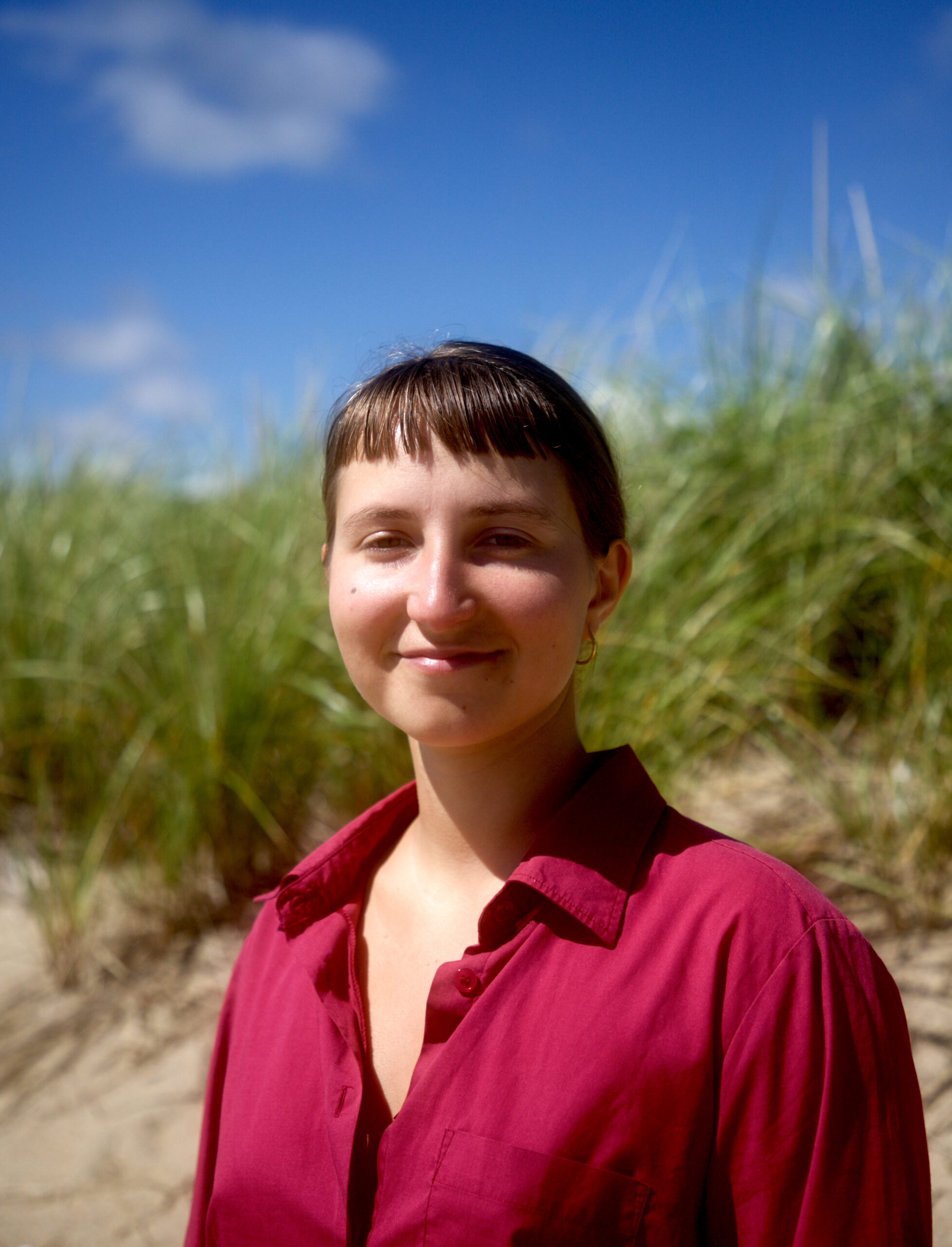
Sophie Elias-Pinsonnault
Sophie Elias-Pinsonnault holds a Master’s degree in economics from the Paris-based joint Master’s program Economic Policies for the Global Transition (EPOG+) (Sorbonne University, Paris Cité and UTC) with a specialization in socio-ecological economics from the Vienna University of Economics. She works on issues related to ecological struggles, labor and postcapitalism.
Research axis : Emancipation
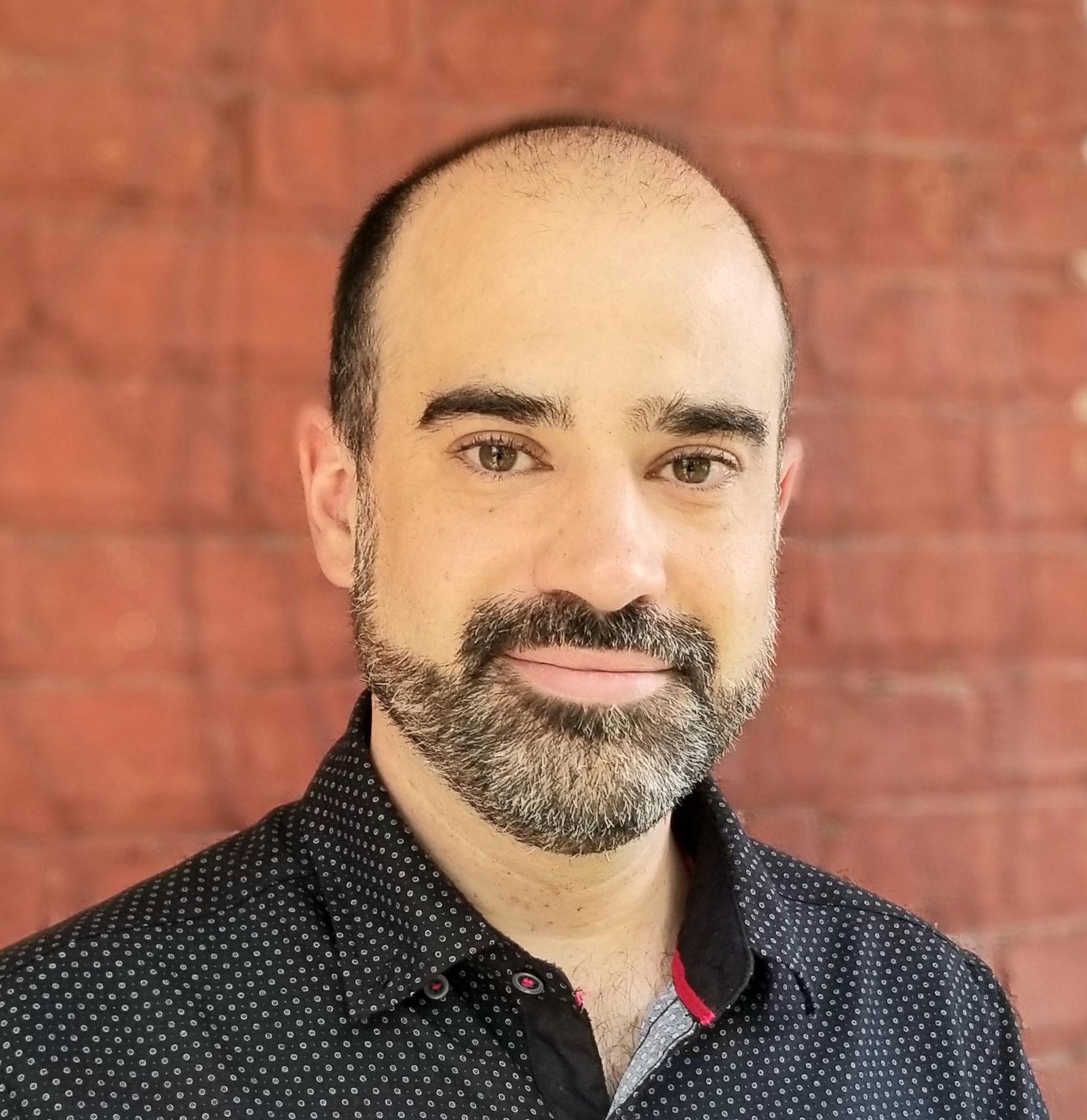
Jérôme Elissalde
Community-based researcher
Practitioner in knowledge transfer, knowledge mobilization and management and then strategic learning, Jérôme Elissalde has worked for more than 13 years in a wide variety of sectors (institutional, philanthropic, non-profit, municipal, academic and social innovation). He founded Perspectiv in 2019.
It now supports organizations and collectives to strengthen their efficiency. Through training, collaborative workshops, diagnostics and support, it addresses the circulation and strategic use of knowledge as powerful levers for continuous adjustment. Its main intervention contexts are change management, strategic clarity, knowledge flow and transfer, organizational memory as well as knowledge and talent management.
Jérôme Elissalde holds a master’s degree from Paris 7 University where he trained in the social circulation of knowledge. He also studied at the University of Quebec in Montreal in the master’s program in social and public communication during a year of university exchange. He is a member of several communities of practice in social innovation, knowledge transfer and mobilization.
He is particularly interested in organizational learning, the dynamics of communication and power in organizations as well as the recognition of tacit knowledge in collective projects.
Research axis : Democratic management
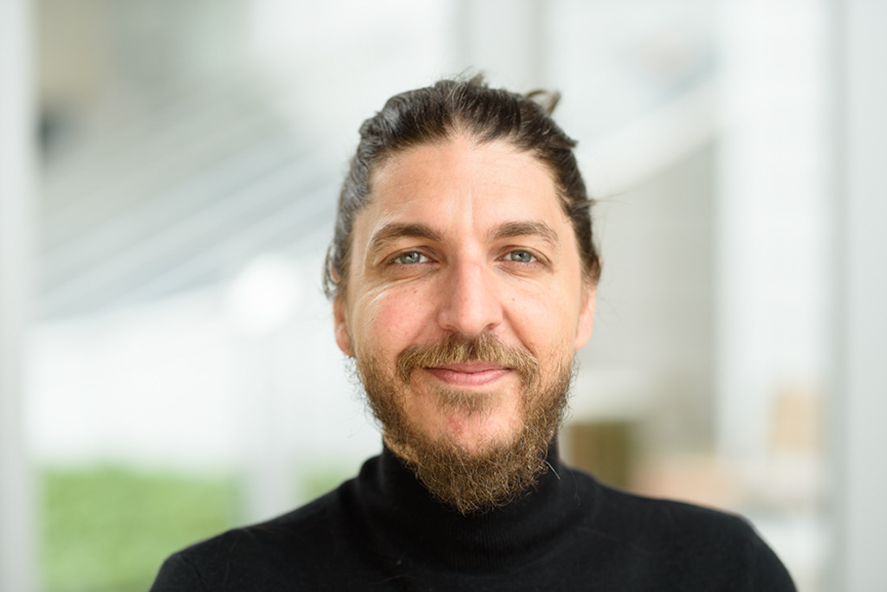
Joseph El-Khoury
Researcher
Joseph (Joey) EL-Khoury is a researcher-activist with a PhD in applied human sciences from the University of Montreal. His thesis focuses on the role of civil society organizations and social movements in transitions towards carbon neutral cities. He also holds an MBA from HEC Montreal, where he took a course in sustainable development management. He has been teaching corporate social responsibility, sustainable development and social innovation at HEC Montreal since 2014 and is also a project manager in social entrepreneurship at the Pôle IDEOS-HEC Montreal, where he accompanies projects and entrepreneurs through various pre-incubation, incubation and acceleration programs; he himself has co-founded two social enterprises in permaculture design. In addition, he works on consulting mandates with municipalities and paramunicipal organizations for the development of public policy in sustainable development and impact strategies. His research interests include social-ecological transition in an urban context, municipalism, social ecology and eco-spirituality. He recently published a chapter on environmental issues in Montreal in the book Urban Policy in Montreal: A Citizen’s Guide published by Black Rose Books.
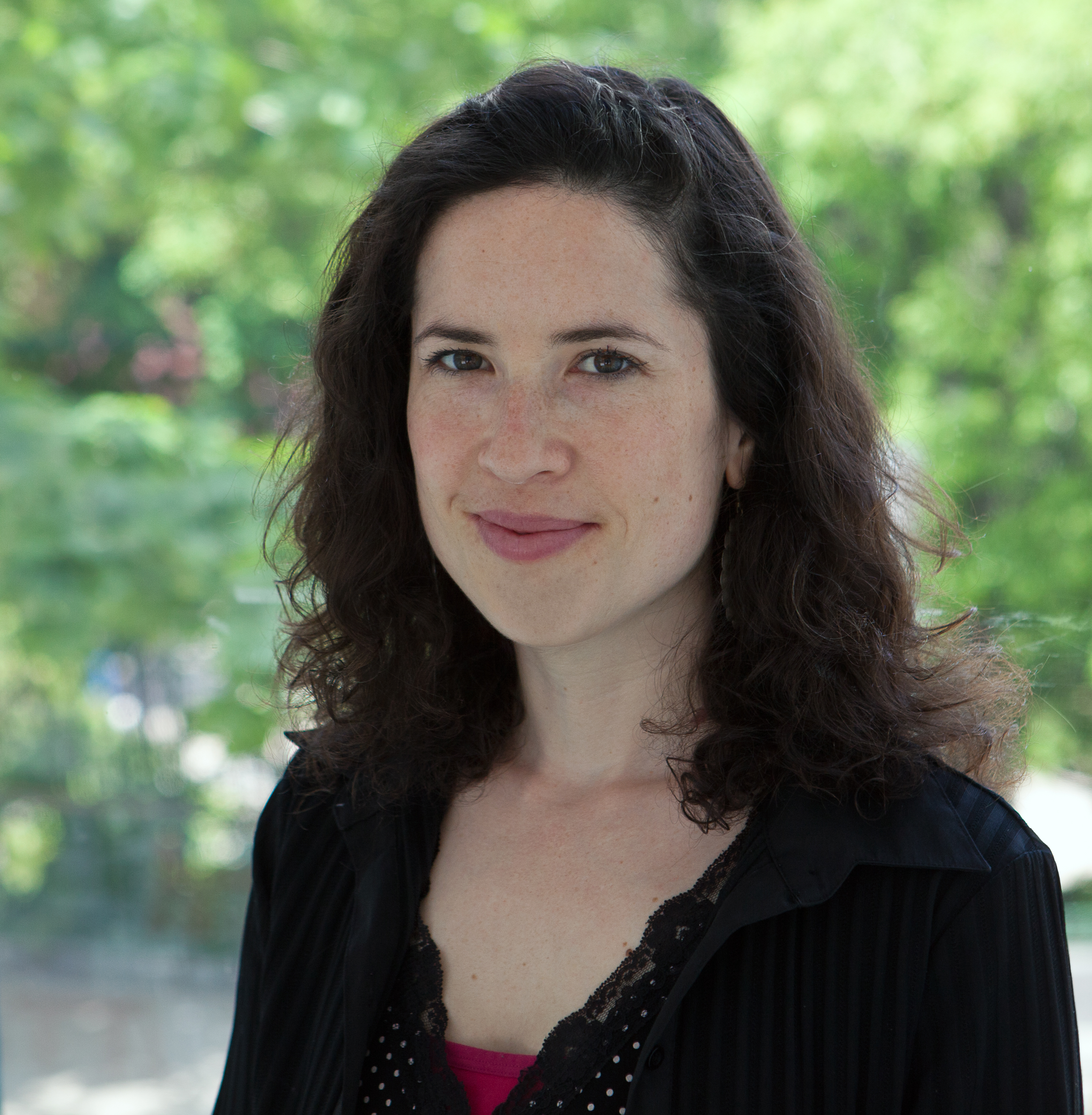
Mathilde Forest
Community-based researcher
Artist and researcher, Mathilde Forest is interested in urban and social transformations in their aesthetic and sociological dimensions. After completing a master’s degree in political science in 2010 (M.A, U. Laval), she began studying Fine Arts (BFA, U. Concordia). The complementarity of these approaches subsequently guided her research and artistic activities dealing with the phenomena of social transformations, participatory initiatives and citizen initiatives.
Over the past ten years, M. Forest has carried out several social research projects on behalf of public organizations and institutions. Many of these research projects focused on participatory management methods, the transformation / citizen reappropriation of public spaces and the analysis of the needs of marginalized populations. The common feature of her research and artistic practice is to favor a collaborative approach that allows her to collect testimonies and fragments of life, often through archival research, interviews and focus groups. By developing hybrid processes between qualitative research and research-creation, M.Forest has developed a multidisciplinary approach that places great emphasis on digital art, installation and photography. Her most recent works have been shown in Montreal and Quebec City, as well as in New York, Shanghai and Kyoto. www.mathildeforest.ca
Research axis : Engaged Pedagogies and Practice of Research
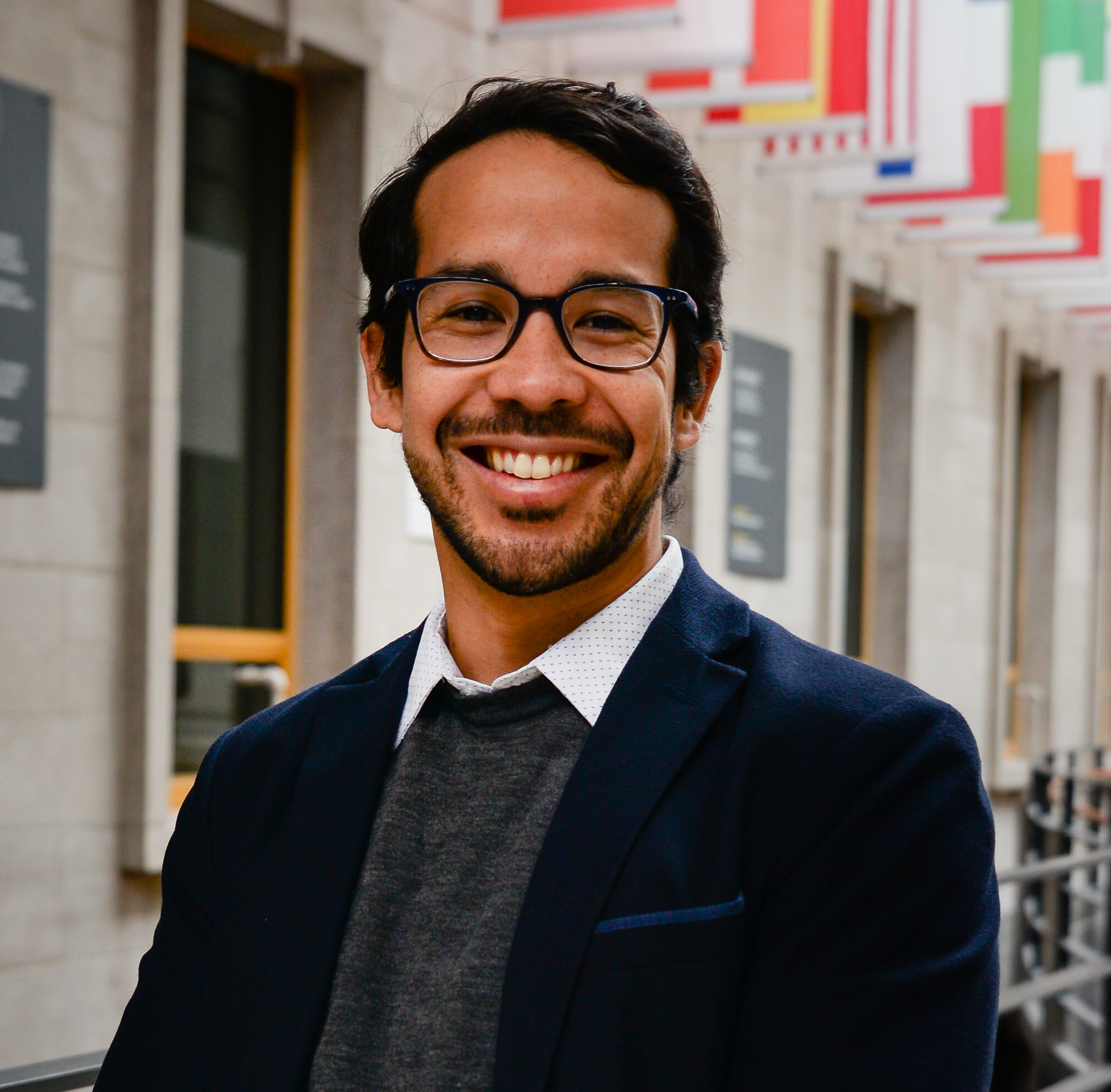
Dan Furukawa Marques
Researcher
Dan Furukawa Marques holds a doctorate in political thought from the University, is Assistant Professor in the Department of Sociology at Laval University and holder of the Alban D’Amours Chair in Teaching Leadership in Sociology of Cooperation. He is also an affiliate professor at the Center for the Studies of Social Movements (CEMS) of the Ecole des Hautes Etudes en Sciences Sociales (EHESS) in Paris. His work focuses on building cooperative communities and social movements, including the Landless Movement in Brazil. He has notably taught courses on political and social philosophy, as well as on globalization, citizenship and development, on the political and social context of Latin America, as well as on Quebec society and its ideologies. His new research projects reflect on the articulation between the solidarity economy and the commons in Montreal, Quebec and Barcelona.
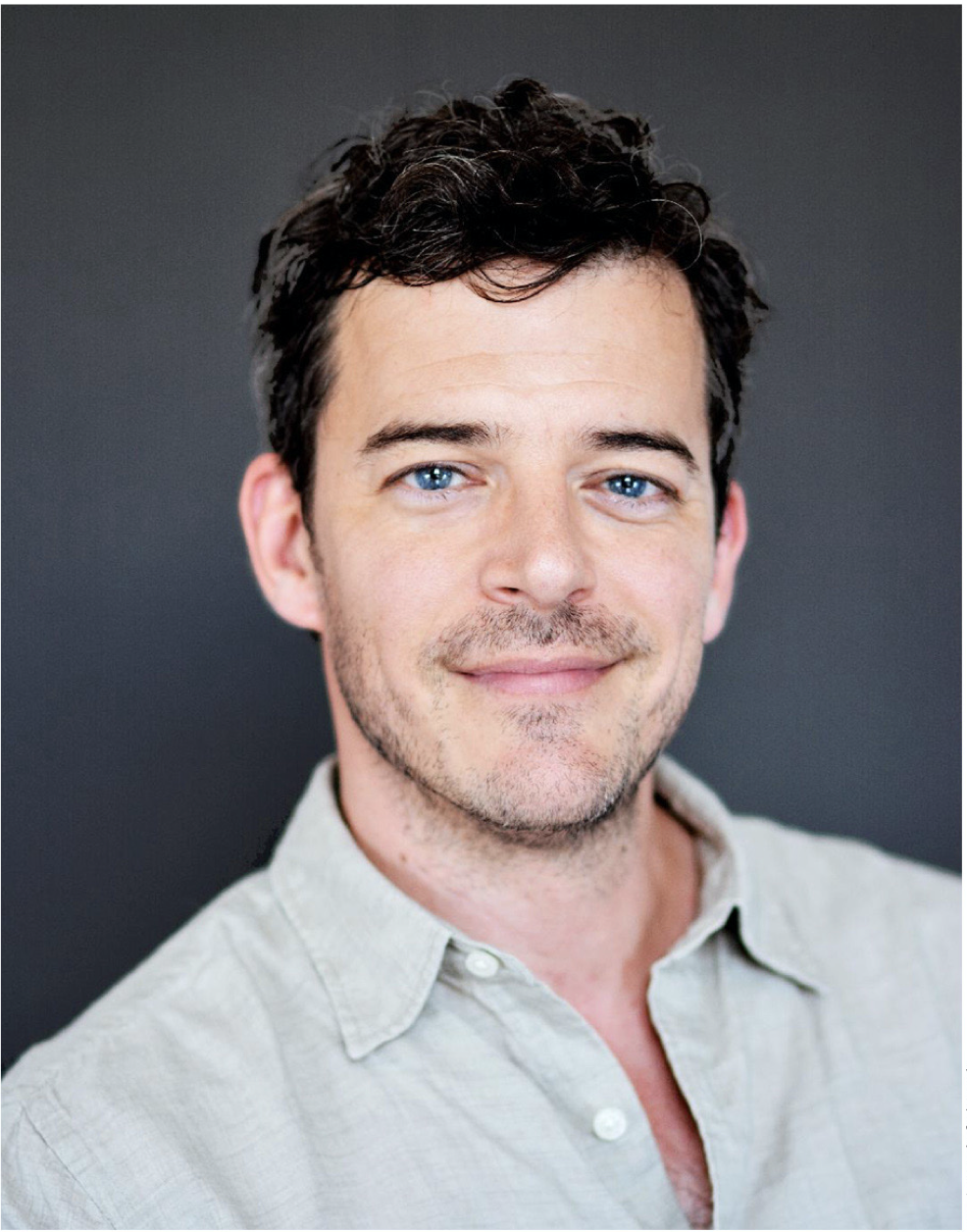
François Grisé
Community-based researcher
Arrived in the arts through literature and theater, François Grisé has been making his life in the world of words and theater for 25 years now. As actor, author, teacher and artistic director of the company Un et un font mille.
For nearly 20 years, he has also been a researcher, educator and trainer in voice, text, diction and movement, for film and theater, in French and English (York University, Toronto – MFA Acting – Voice Teaching Diploma – 99 ). For 10 years, his growing interest in the visual arts, his extended training in voice, somatic education and most recently in performative art (Canada, France, England) have nourished his artistic process.
Interested in the multidisciplinarity of the arts, François developed several projects combining performance, installation, visual art and documentary theater. His works question and reframe the temporary and precarious nature of living beings. In POESIS, humans, put on the spot, find themselves in a state of vulnerability. They question our relationship to ourselves, to places, to individual and collective space.
His latest creation, Tout inclus, sold out at the Théâtre La Licorne in October 2019. The piece, still in writing, will be presented in Quebec City, Montreal and on a Quebec tour throughout the 202 -2022 season.
Research axis : Engaged Pedagogies and Practice of Research

Christopher Gunter
Researcher
Christopher Gunter holds a PhD in public administration with a major in public policy and cultural management. His work focuses on cultural policy, museums and activism, identity, cultural administration, and public participation. His current research includes discursive examinations of museum activism and social leadership. Chris is also an affiliate professor at the Cultural Policy Research Network, a board member of the journal Culture and Local Governance (CGL), and a volunteer member of the Workers’ History Museum.
Research axis : Democratic management
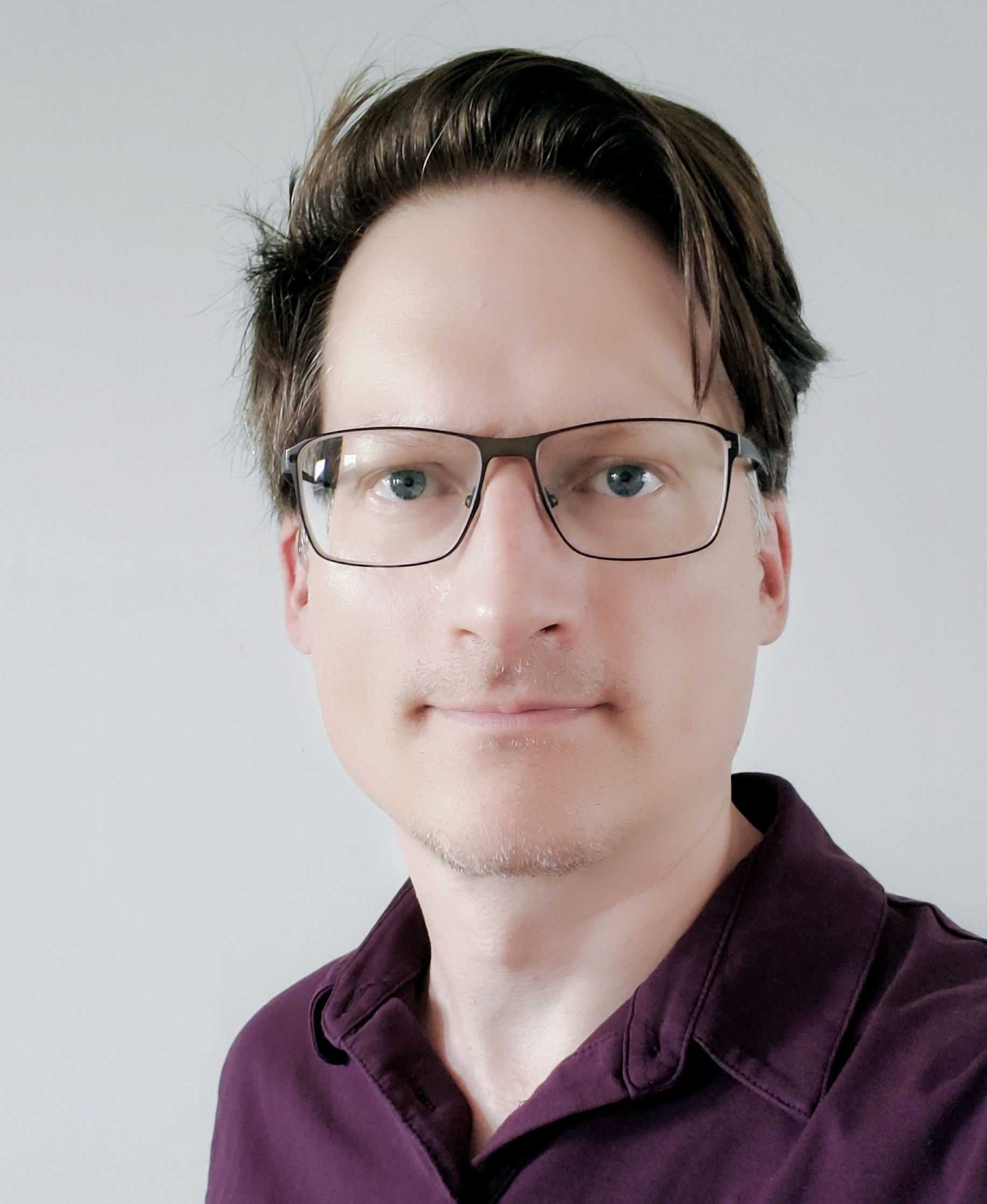
Lorenz Herfurth
Researcher
Lorenz Herfurth holds a PhD in Design from Lancaster University (UK) with a specialization in exploring the interdiscipinary space between collaborative design, management and organization studies. He is Part-Time Professor with the Élisabeth-Bruyère School of Social Innovation at Saint-Paul University, with the Design School at University of Montreal, with Concordia Continuing Studies (Concordia University) and with the Innovation School at the Glasgow School of Art (UK). Lorenz has collaborated with social innovation practitioners interested in governance and working with public services (including the fields of health, mobility, urban crime, etc.) on multidisciplinary research projects that have adopted methods of co-design and co-creation. He is a member of the advisory board for the Art, Design and Communication in Higher Education (ADCHE) journal.
Research axis : Democratic management
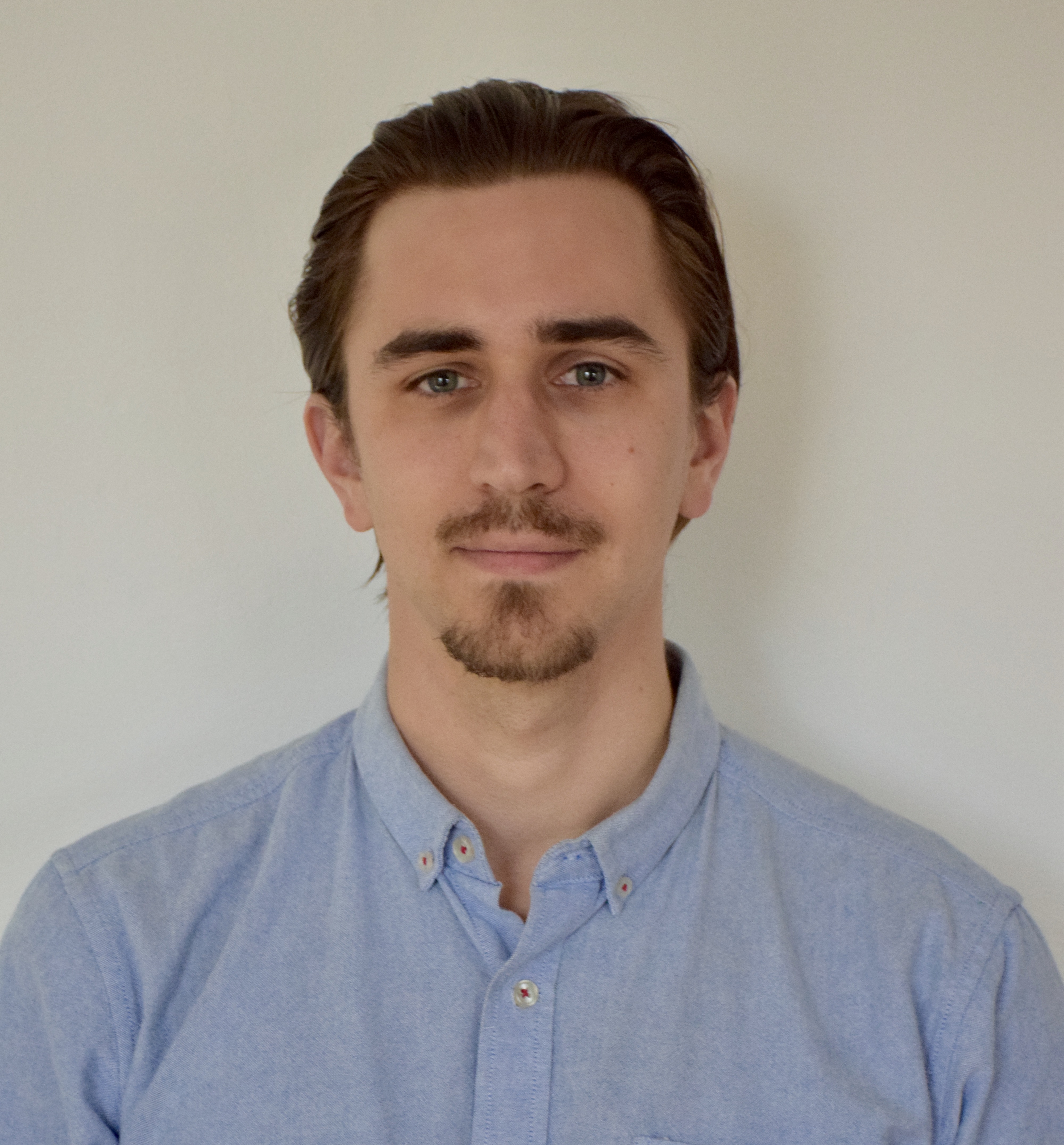
Marc D. Lachapelle
Researcher
Marc D. Lachapelle is a lecturer at HEC Montréal and part-time professor at the École d’innovation sociale Élizabeth-Bruyère. He holds an M.Sc. in management from HEC Montréal. He teaches courses in sociology of organizations and management in the context of social innovation. His research focuses on the implementation of alternative projects, democratic and self-managed organizational and decision-making processes, as well as organizational tensions and paradoxes. In addition, he is currently conducting research on engaged pedagogy in the management of social innovation.
1 ongoing research
Research axis : Democratic management

Chantal Mailhot
Researcher
Chantale Mailhot is a tenured professor in management at HEC Montréal. She is interested in social transformation practices, socio-environmental controversies, management tools, and pedagogy in social innovation. She has published in Journal of Management Studies, Organization Studies, Journal of Business Ethics, Leadership, Canadian Journal of Sociology, Journal of Change Management, M@n@gement, Gérer et Comprendre and Revue Française de Gestion, among others. In terms of teaching, she teaches courses in social innovation management, people leadership skills, decision making, and managing controversial issues. She is a regular member and associate director of CRISES and a member of the pedagogy research pole at HEC Montréal.
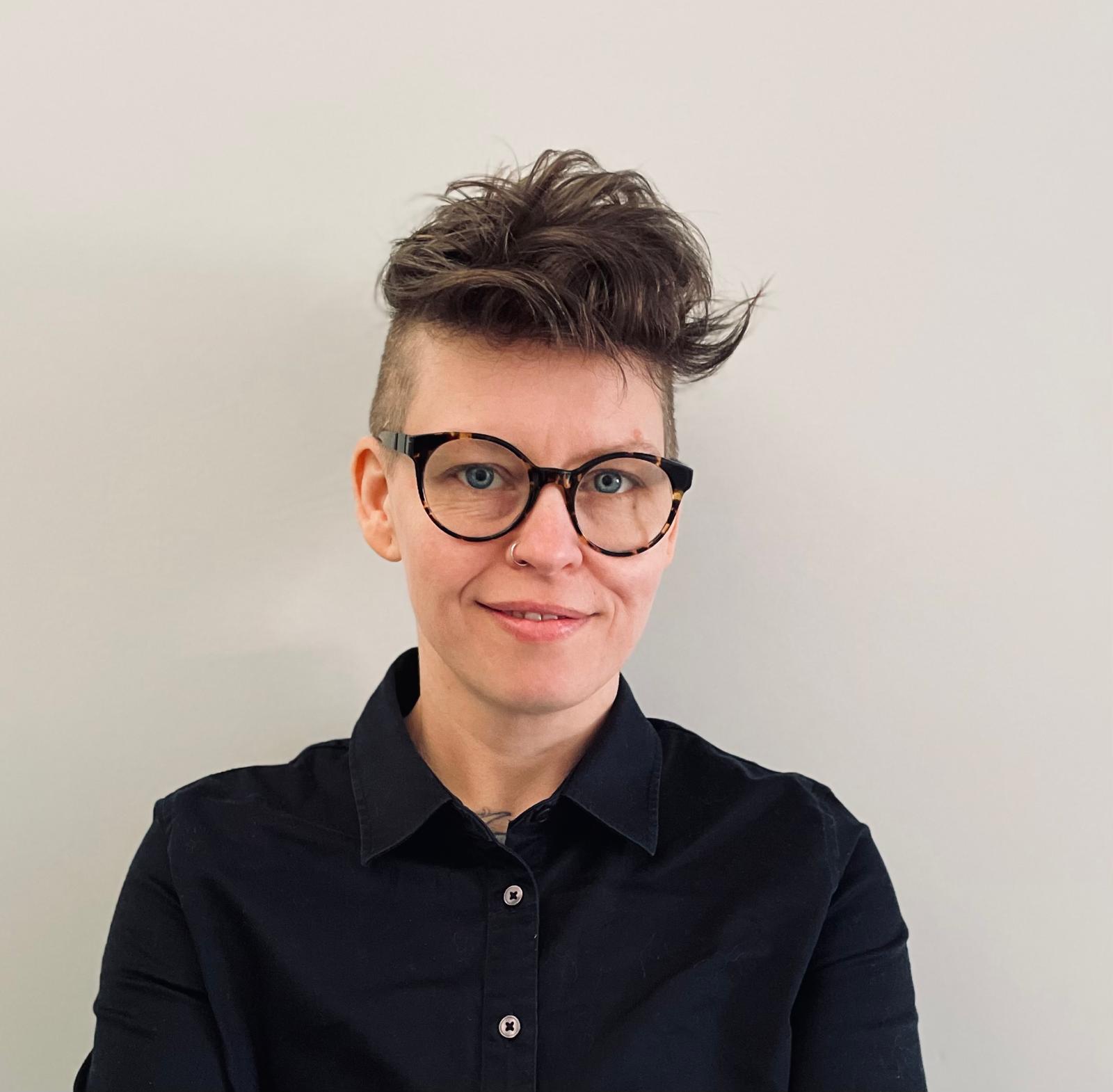
Krys Maki
Krys Maki (they/them) holds a PhD in Sociology. Their areas of research include feminist movements, collective organizing around gender-based violence, poverty and social inequality, and critical surveillance studies. Prior to joining the School of Social Innovation at Saint Paul University they completed a SSHRC Postdoctoral Fellowship in the Institute of Feminist and Gender Studies at the University of Ottawa on labour organizing and movement building within women’s shelters. Outside of academia, Krys worked as the Director of Research and Policy at Women’s Shelters Canada, a national non-profit network of violence against women shelters (2017-2022). Their activist scholarship is deeply informed by their work as a long-time organizer and activist with labour, anti-poverty, and feminist movements.
Research axis : Emancipation
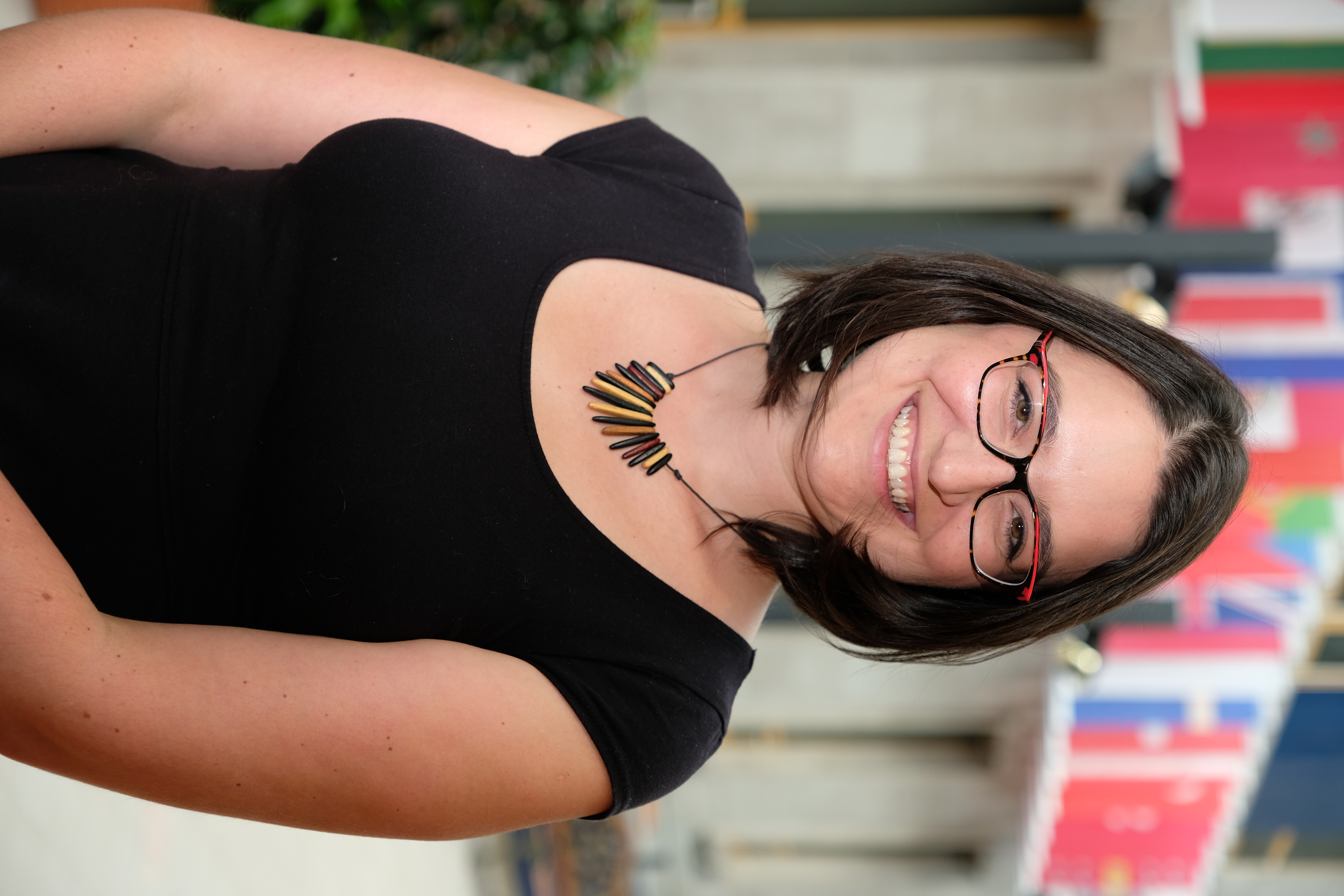
Myriam Michaud
Researcher
Myriam Michaud is a doctoral student in management at the Faculty of Business Administration (Université Laval). Her research and teaching interests relate to the cooperative model, governance, corporate democracy, management education issues and cooperative education. Her thesis focuses on the processes of professionalization of cooperative governance. She is a part-time teacher at the School of Social Innovation for the course Starting a Social Organization. She has been involved in the cooperative sector for more than ten years and has contributed to the start-up, management and administration of various cooperatives and non-profit organizations. Today, she acts as an advisor and volunteer coach for social economy enterprises in Quebec City.
Research axis : Democratic management

Lauren Michelle Levesque
Researcher
Lauren Michelle Levesque holds a PhD in Theology/Spirituality and is an assistant professor in the Providence School of Transformative Leadership and Spirituality at Saint Paul University. She works on arts-based research, engaged scholarship, musical performance, nonviolent social change and space. She is co-coordinator of the Engaged Pedagogy stream in the Center on Social Innovation and Transformation. In 2016 she co-edited the book Advancing Nonviolence and Social Transformation: New Perspectives on Nonviolent Theories published by Equinox.
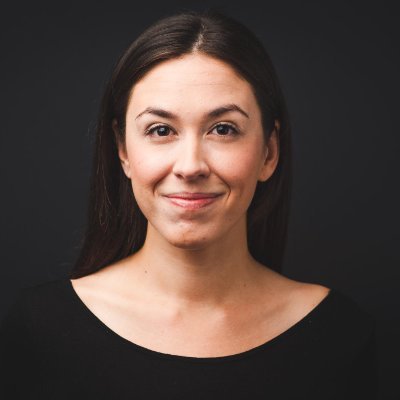
Aurélie Lanctôt
Researcher
Aurélie Lanctôt is a doctoral student in law at McGill University. Her research focuses on feminist theories and the epistemology of law, the intersections between law and literature, criminal law and alternative justice mechanisms. From 2018 to 2022, she was also co-director and editor-in-chief of Liberté magazine, and is the author of various essays.
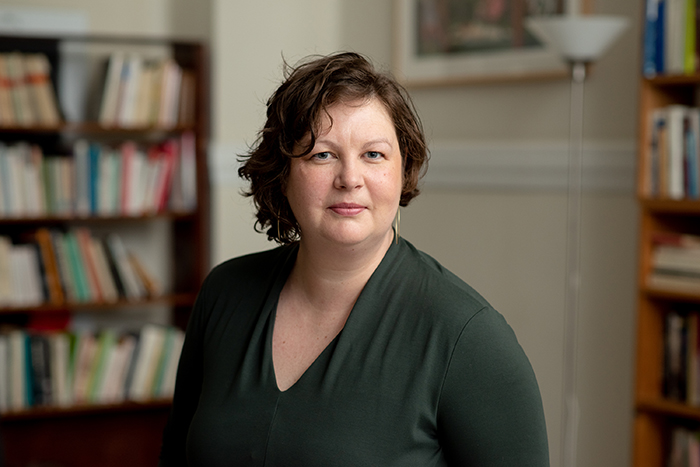
Audrey Laurin-Lamothe
Researcher
Audrey Laurin-Lamothe is Associate Professor at York University. Her research program is based on the idea that financialization is an engine of economic transformation and, more broadly, that it profoundly influences relations between households, organizations and the state. Her previous academic contributions have analyzed gender-based tax policies, public indebtedness and wage stagnation in Canada. She is the author of Financiarisation et élites économiques au Québec (Presses de l’Université Laval, 2019).
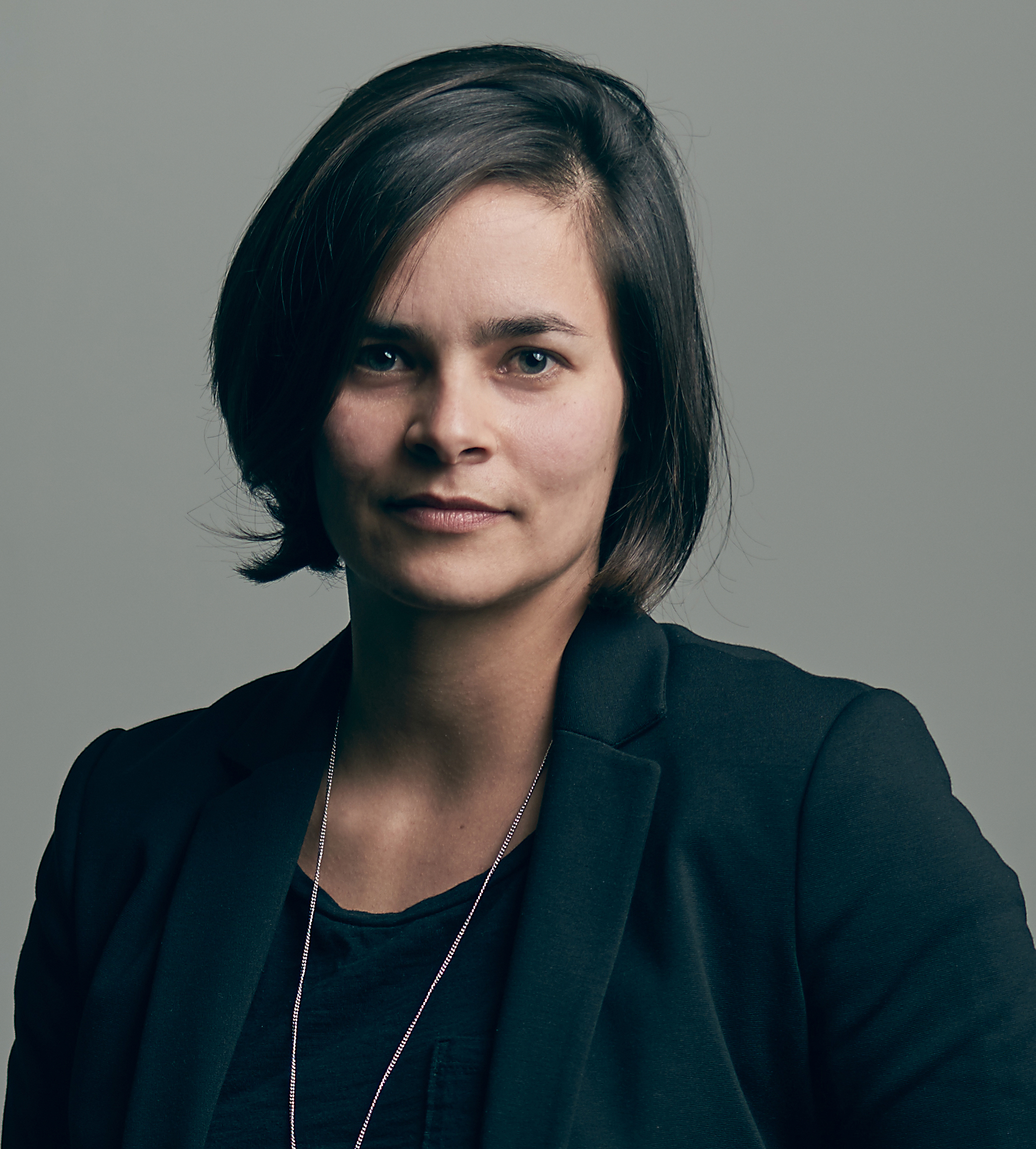
Anahi Morales Hudon
Researcher
Anahi Morales Hudon is assistant professor at the Élisabeth Bruyère School of Social Innovation at Saint-Paul University. She holds a PhD in sociology from McGill University and specializes in the study of social movements, intersectionality, organizational dynamics and transformation of power relations. She has published articles in the Canadian Journal of Political Science, Journal of Latin American Studies, Sociologie et Sociétés, and Recherches féministes. She coauthored Indigenous Women’s Movements in Latin America : Gender and Ethnicity in Peru, Mexico, and Bolivia (New York, Palgrave Mcmillan, 2017). Finally, she codirected the issue “Femmes autochtones en mouvement: fragments de décolonisation”, in Recherches féministes (Volume 30, n.1, 2017).
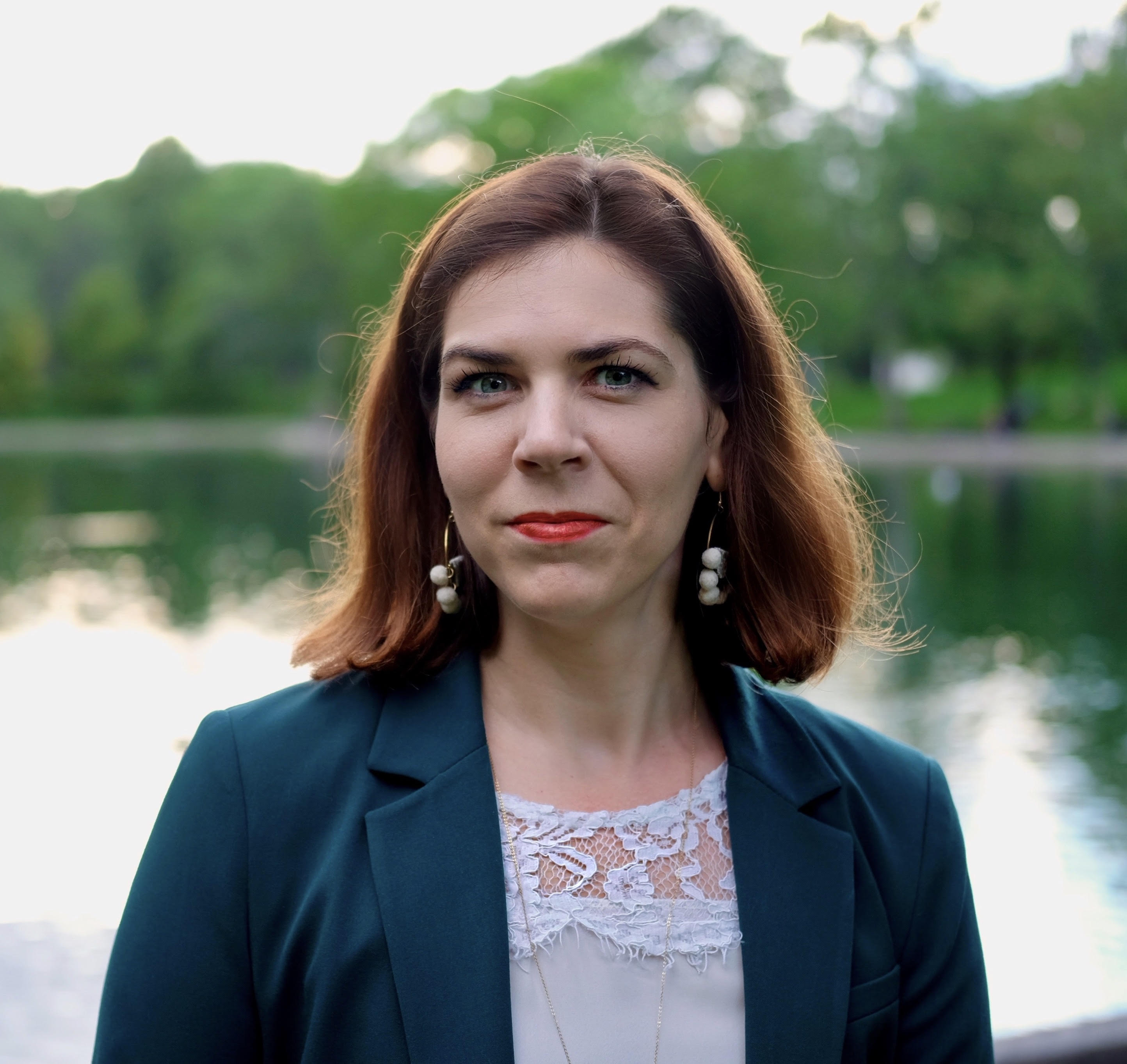
Émilie Nollet
Researcher
Émilie Nollet holds a PhD in business administration, management, strategy and entrepreneurship option, from HEC Montréal. Her doctoral research focused on food studies, entrepreneurship and social inclusion, especially in the context of marketing a service that presents a risk of gentrification for communities. She is co-founder of ÉAU, a social innovation company that has won awards for its business model and its contribution to social innovation research.
Émilie is currently doing a post-doctoral fellowship at Saint Paul University on topics related to inclusive leadership and moral foundations theory. She is interested in ways to build consensus for the creation or implementation of large-scale projects.
Research axis : Democratic management
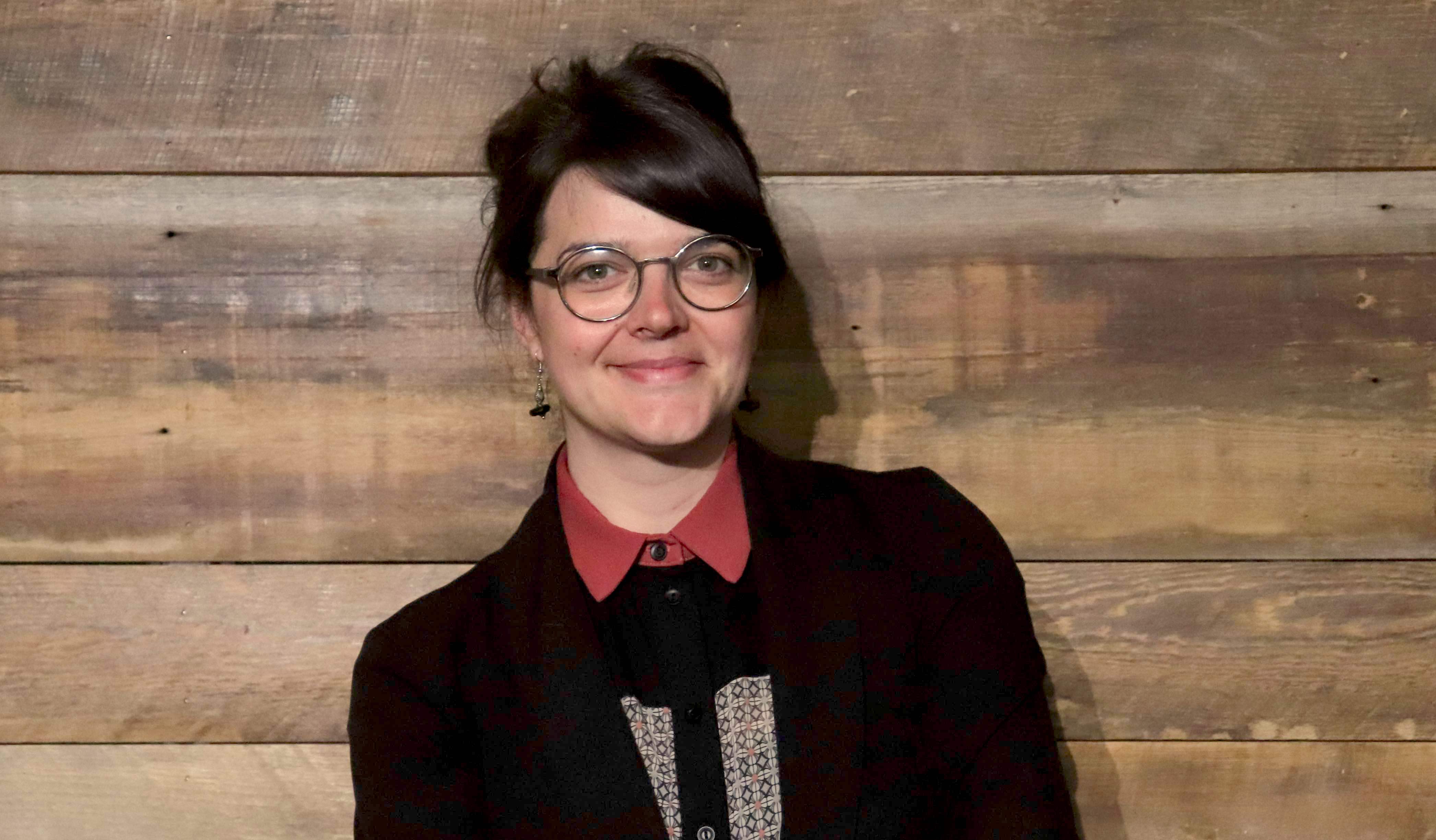
Julie Paquette
Researcher
Julie Paquette holds a doctorate in political science from the University of Ottawa and completed a postdoctoral fellowship at the Université de Montréal (2012-2014) at the Center for Intermediate Research on Arts, Letters and Techniques, and at the Canadian Center for German and European Studies, where she interrogated the question of new fascism in the thinking of the intellectual, poet and filmmaker Pier Paolo Pasolini (1922-1975). Her most recent research focuses on the resurgence of fascism in contemporary time periods; the ethics surrounding new technologies as well as the intercession between art, ethics and politics, based on scandal theories and a conception of freedom of expression as non-domination. She is the author of “Theater and Marxist heresies: Pasolini must be what the Pasolini is not”, in The theaters of Marx, edited by O. Neveux and published in 2019 at the University Presses of Rouen. She also published “From Disciplinary Society to Algorithmic Society: Ethical Considerations around the Big Data Challenge” in Issue 9 of the French Journal for Media Research.
Assistant Professor at the School of Ethics, Social Justice and Public Service at Saint Paul University in Ottawa, she is co-director of the Center for Research in Public Ethics and Governance (CRÉPuG) and a member of the board of the Mauril Bélanger Social Innovation Workshop.
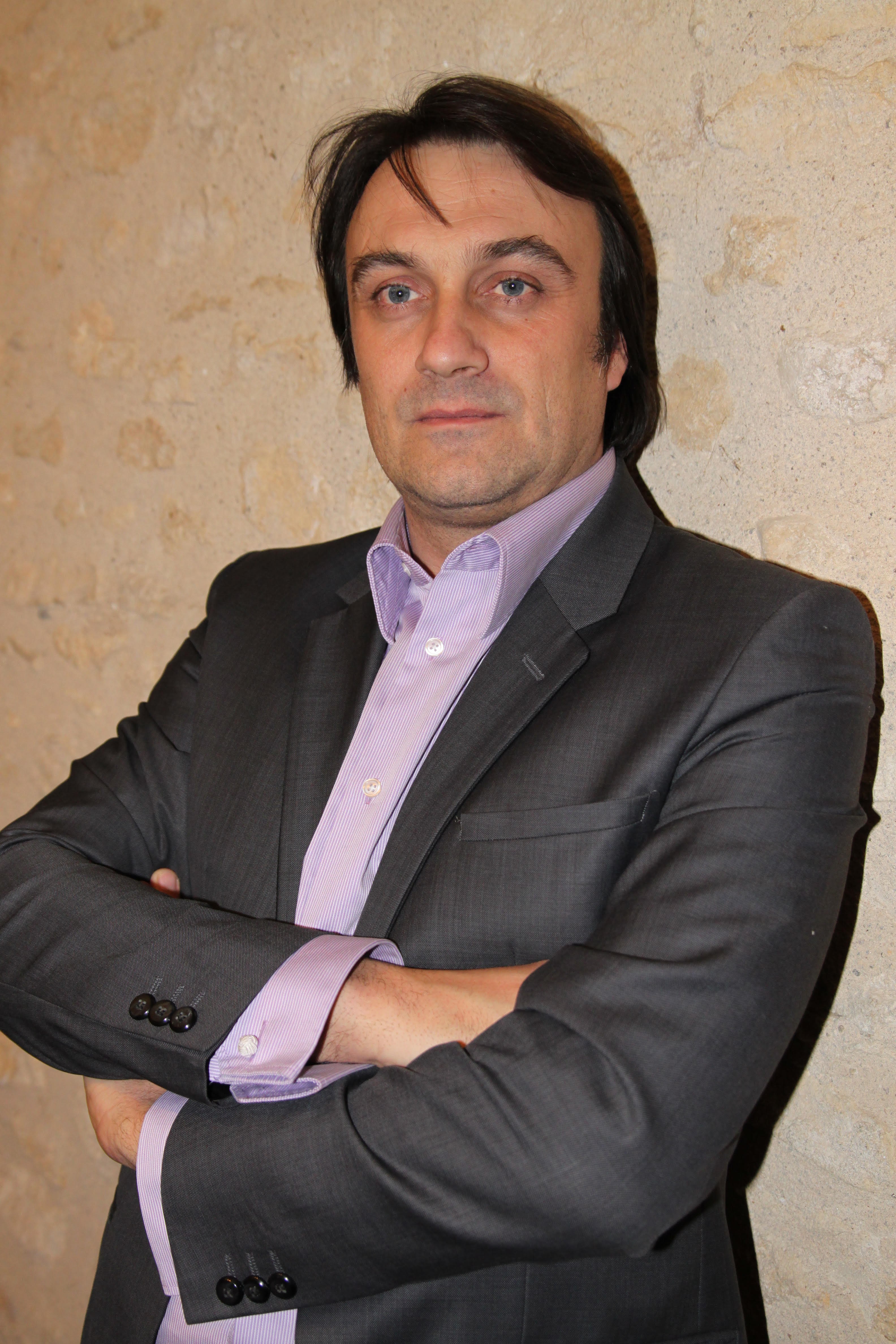
Eric Puisais
Researcher
Eric Puisais holds a PhD in Political Philosophy from the University of Paris-Sorbonne and is currently pursuing a second PhD in Social and Economic Geography at the University of Poitier.
His central research topic is “Territories and Governmentality”. It is a question of studying the way in which a territory (in the sense of an institutionalized geographical space) constructs the modalities of its own governmentality, i.e. the way in which a power is organized, according to which ideological modalities, by implementing which types of power techniques, etc. In addition to his experience in university research, he has taught philosophy, history of philosophy and political philosophy for several years, and has worked in several local authorities in France as a political cabinet director.
Research axis : Emancipation
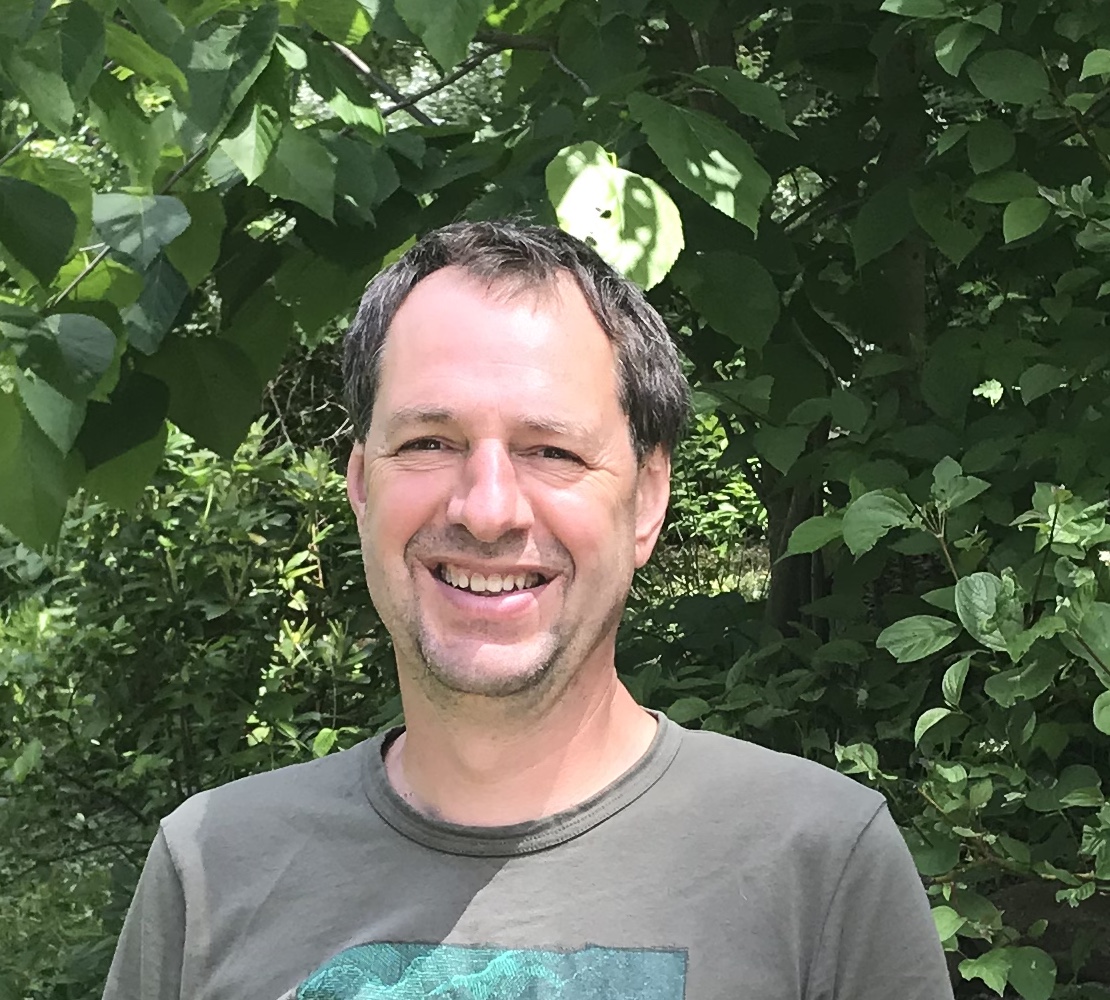
Éric Pineault
Associate researcher
Éric Pineault is a professor in the sociology department and chairman of the research committee of the Institute of Environmental Sciences at UQAM. Economist and sociologist, his research focuses on the financialization of advanced capitalism and on the hypotheses of transition towards a post-capitalist ecological economy.
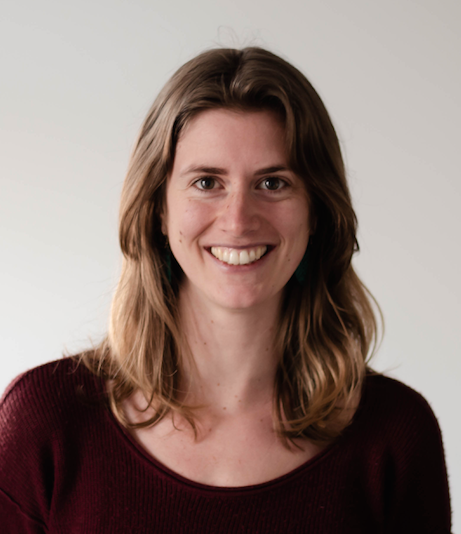
Joëlle Saey-Volckrick
Community-based researcher
Joëlle Saey-Volckrick is a Lecturer of Ecological Economics at the Berlin School of Economics and Law (BSEL/HWR) and at the Elisabeth Bruyere Social Innovation School in Ottawa. She is also an editor of the international webportal Degrowth.info and a community builder for NousRire, a food buying group in Quebec. She is a associate member of the institute for international political economy Berlin (IPE). She studied her Bachelor’s in Political Science and Economics at the Free University of Brussels (ULB) and the National Autonomous University of Mexico (UNAM), and her Master in International Economics at the Berlin School of Economics and Law (HWR). Her research is grounded in the fields of ecological economics, political ecology, environmental justice and degrowth. Her work generally aims at bridging the gap between academic research and social movements.

Martin Samson
Martin Samson holds a bachelor’s degree in pedagogy from the Université du Québec en Outaouais and a master’s degree in public ethics from Saint Paul University. As a PhD candidate in conflict studies, he is currently writing his doctoral dissertation on the problematization of the climate–conflict nexus and the concept of Anthropocene. His work is inspired by Michel Freitag’s dialectical realism. His research focuses on Michel Freitag’s political epistemology, the socioscientific questions related to the Anthropocene, the climate-conflict nexus, eco-power, ethics and normativity, social transformation, managerial ideology, environmental management, and emancipation.
Research axis : Democratic management
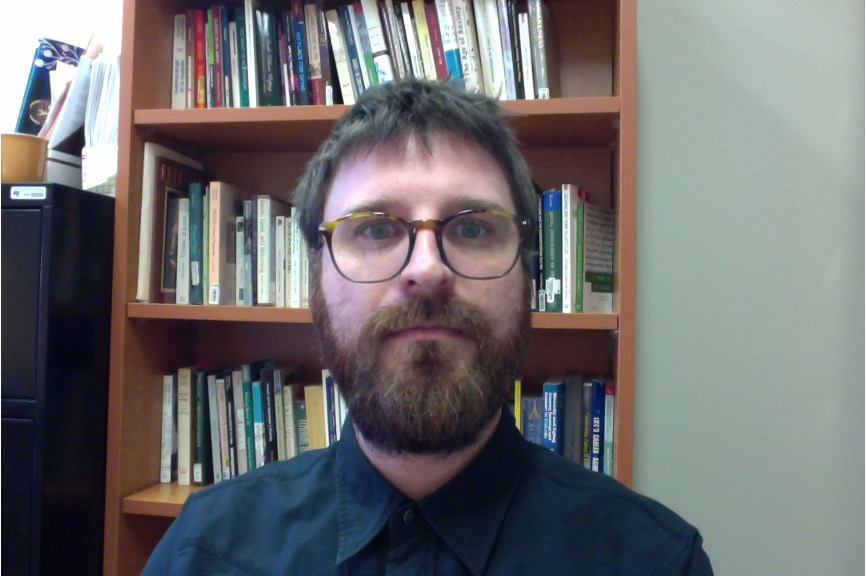
Julien Simard
Researcher
Julien Simard is currently a postdoctoral researcher at the McGill School of Social Work. He holds a master’s degree in anthropology from the Université de Montréal and a doctorate in urban studies from INRS-UCS. His work focuses on residential precariousness in the context of gentrification, with aging people living in situations of social exclusion. His work is unique in that it is situated at the confluence of the fields of critical urban studies and social gerontology, with a particular interest in residential precariousness. Through the use of ethnography, Julien Simard seeks to make visible the major obstacles to the application of “aging in place” policies, which are energetically promoted by different levels of governance. Julien Simard is also interested at the end of life and death, particularly in the context of palliative care. He teaches in the Gerontology Certificate of the Faculty of Continuing Education (FEP) at the Université de Montréal. He has written book chapters in books published by PUL, PUQ, and elsewhere, including “Gentrification and Aging in Montreal, Quebec: Housing Insecurity and Displacement Among Older Tenants,” in J. Krase and J. De Sena (eds.), Gentrification Around the World, 37-59. New York: Palgrave Macmillan. He is also a student member of the Center for Research and Expertise in Social Gerontology (CREGÉS).
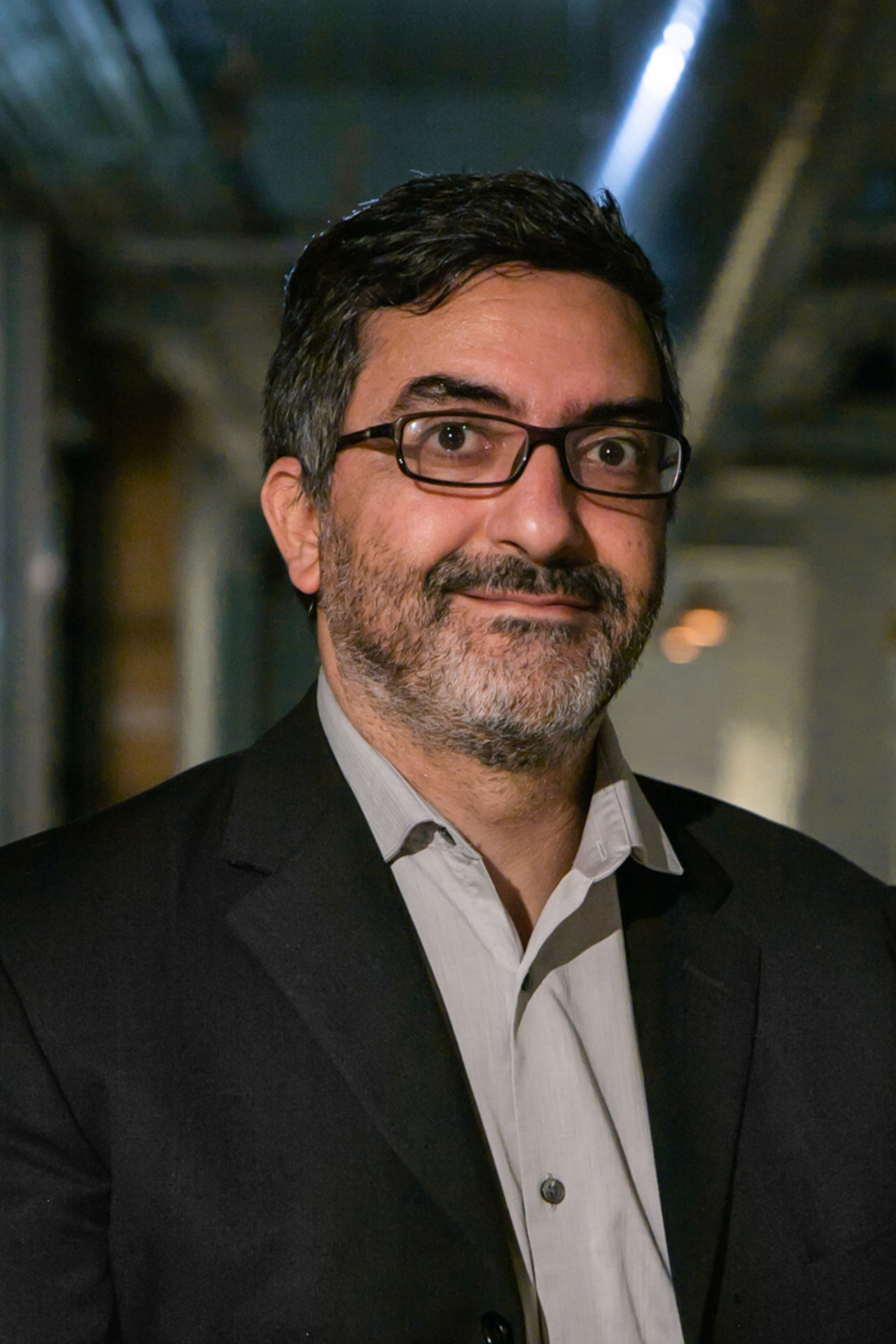
Jamel Stambouli
Researcher
Jamel Stambouli holds a PhD in Management -HEC Montréal. His doctoral research explored the importance of sociocultural factors in organizations and discussed the influence of spirituality and religious values on entrepreneurs and management organizations. Many of his writings have been published in the form of reports and book chapters. His current research interests include immigrant entrepreneurship, social entrepreneurship and the development and management of social and solidarity economy organizations. He has professional experience in the industry and has been a consultant to both national and international organizations. He has also acted as a coach for several entrepreneurs.
Research axis : Democratic management
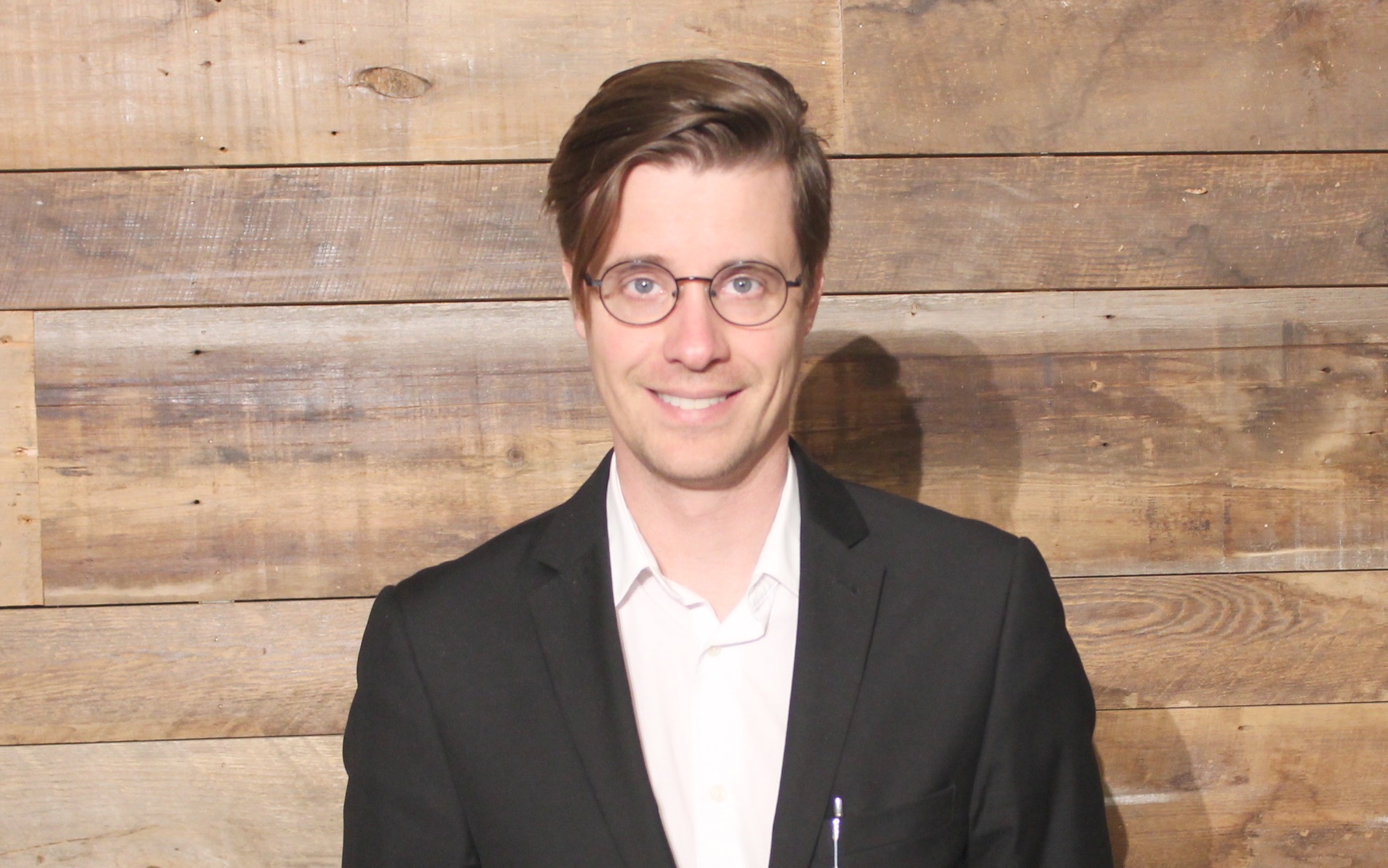
Simon Tremblay-Pepin
Researcher
Simon Tremblay-Pepin is a professor at the Élisabeth Bruyère School of Social Innovation at Saint Paul University. His research interests are the democratization of the economy, critical media studies and public finance. He is the co-author of Du vin et les jeux: le virage commercial de la SAQ et de Loto-Québec published by Lux in 2019 and he edited Dépossession: une histoire économique du Québec contemporain, Volume 1: Les Ressources, published by Lux in 2015.
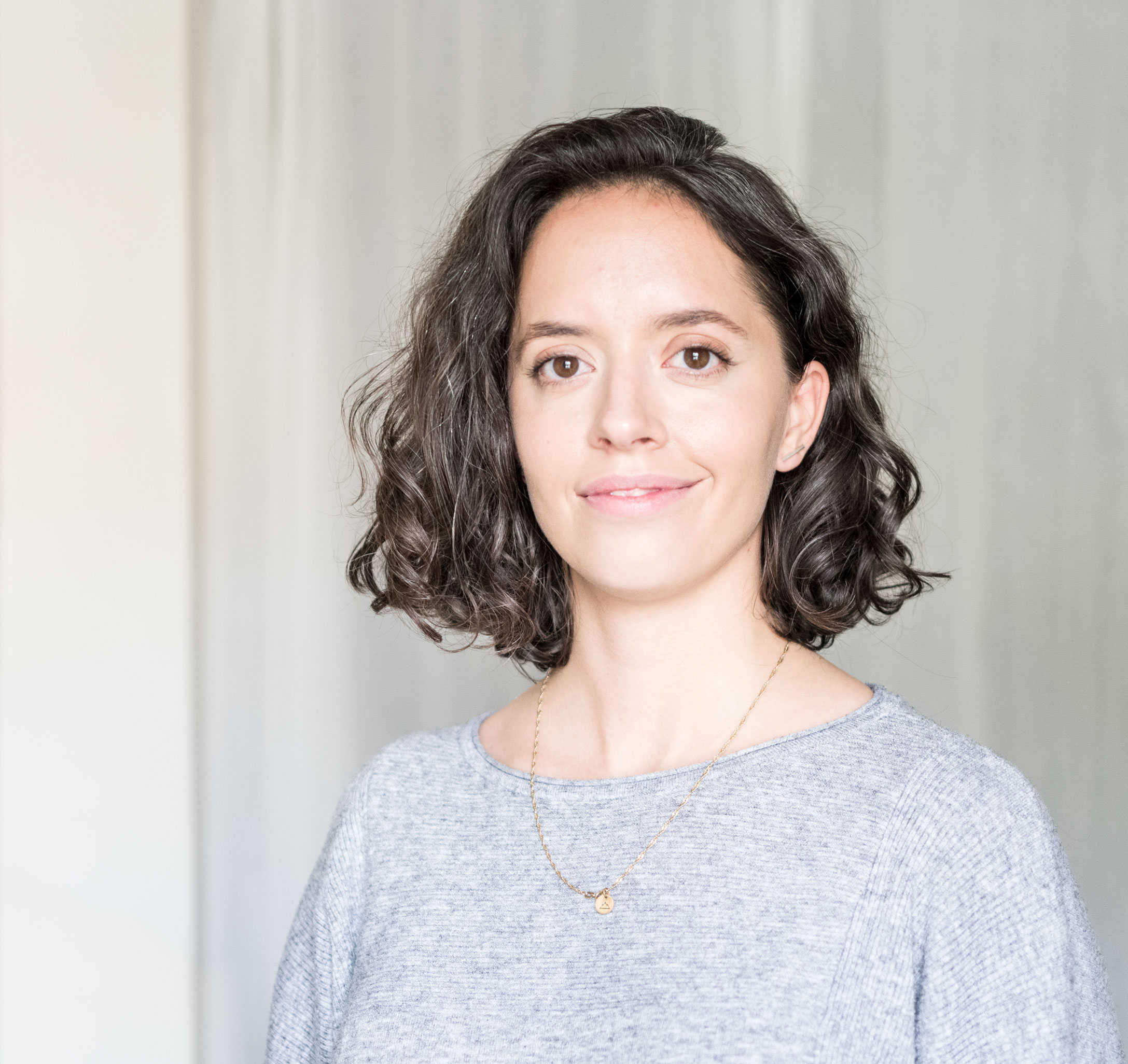
Anouk Verviers
Community-based researcher
Anouk Verviers is an interdisciplinary artist who creates mobile spaces that harbour and stimulate conversations where individuals come together in different ways. Joining communities as an artist, she develops long-term collaborative projects that allow her to further reflect on the role of art and the artist in society. Her work has been presented in solo and group exhibitions in Quebec and internationally. In 2019, she carried out a residency in Carleton-sur-Mer with Vaste et Vague and in Switzerland with Dogo Residenz, and presented a solo exhibition at Regart, an artist-run centre.
Research axis : Engaged Pedagogies and Practice of Research

Amanda Wilson
Researcher
Amanda Wilson holds a PhD in Sociology, with a Specialization in Political Economy. Her areas of research include the food movement and alternative food networks, co-operatives and collective organizing, and questions related to prefiguration and enacting a politics of possibility. Prior to joining the School of Innovation at Saint Paul University her undertook a community-based PostDoctoral Fellowship at Lakehead University’s Centre for Sustainable Food System Research and Engagement, working with Food Secure Canada on food movement mobilizations in national food policy. Outside of academia, she has worked with several non-governmental organizations in the areas of policy analysis, research, network coordination and popular education, and is a long-time community organizer and activist in Ottawa. In 2018 she coedited a special issue of Canadian Food Studies entitled Building an Integrated National Food Policy for Canada.
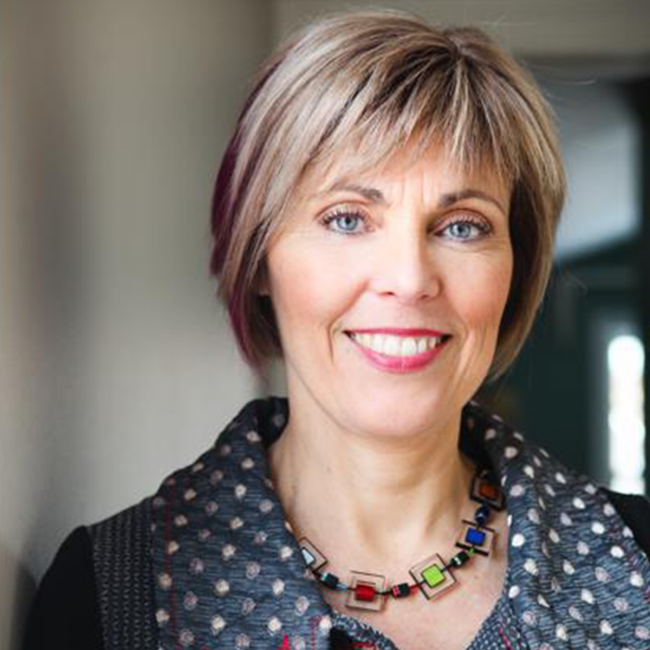
Sylvie Plante
researcher-practitioner
Sylvie Plante is a researcher-practitioner in social innovation, organizational development and leadership. As Doctor of Social Sciences (Royal Roads University), Sylvie researches the creation and use of social capital and boundary-spanning practices to facilitate innovation in cross-sector partnerships, as well as the crafting of scholar-practitioner identities in academic institutions. Her writing has received awards from the International Leadership Association and the Center for Creative Leadership. She contributes to the Élisabeth Bruyère School of Social Innovation as a part-time professor, and is also an entrepreneur, running a consulting practice serving the public, private and not-for-profit sectors.
Research axis : Democratic management

Mattia Scarpulla
Researcher
Mattia Scarpulla is an author and postdoctoral researcher at CRITS. His books include Au nord de ma mémoire, a collection of poetic narratives, and the novel Errance (Annika Parance Éditeur, 2020 and 2021). He co-edited the short story anthology Épidermes (Tête première, 2021). He leads writing workshops enriched by physical activities and meditation. He is interested in literature dealing with issues of identity and bodily representations. He is literary director of Tête Première, and a member of the board of directors of the Centre québécois du PEN international.
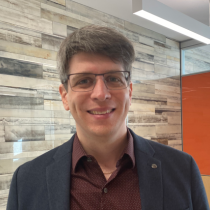
Michaël Séguin
Researcher
Michaël Séguin is Assistant Professor at the Providence School of Transformative Leadership and Spirituality. He holds a doctorate in sociology from the Université de Montréal and specializes in equity, diversity and inclusion (EDI) in organizations. His post-doctoral research focused on the challenges faced by managers of Muslim faith, as members of a racialized minority, in their career progression in Quebec. His doctoral research focused on the cognitive dimension of Israeli settlement colonialism and the representation of Palestinians it engenders. His current research focuses on inclusive leadership, diversity training and the role of allies in the third sector, particularly in community organizations.

